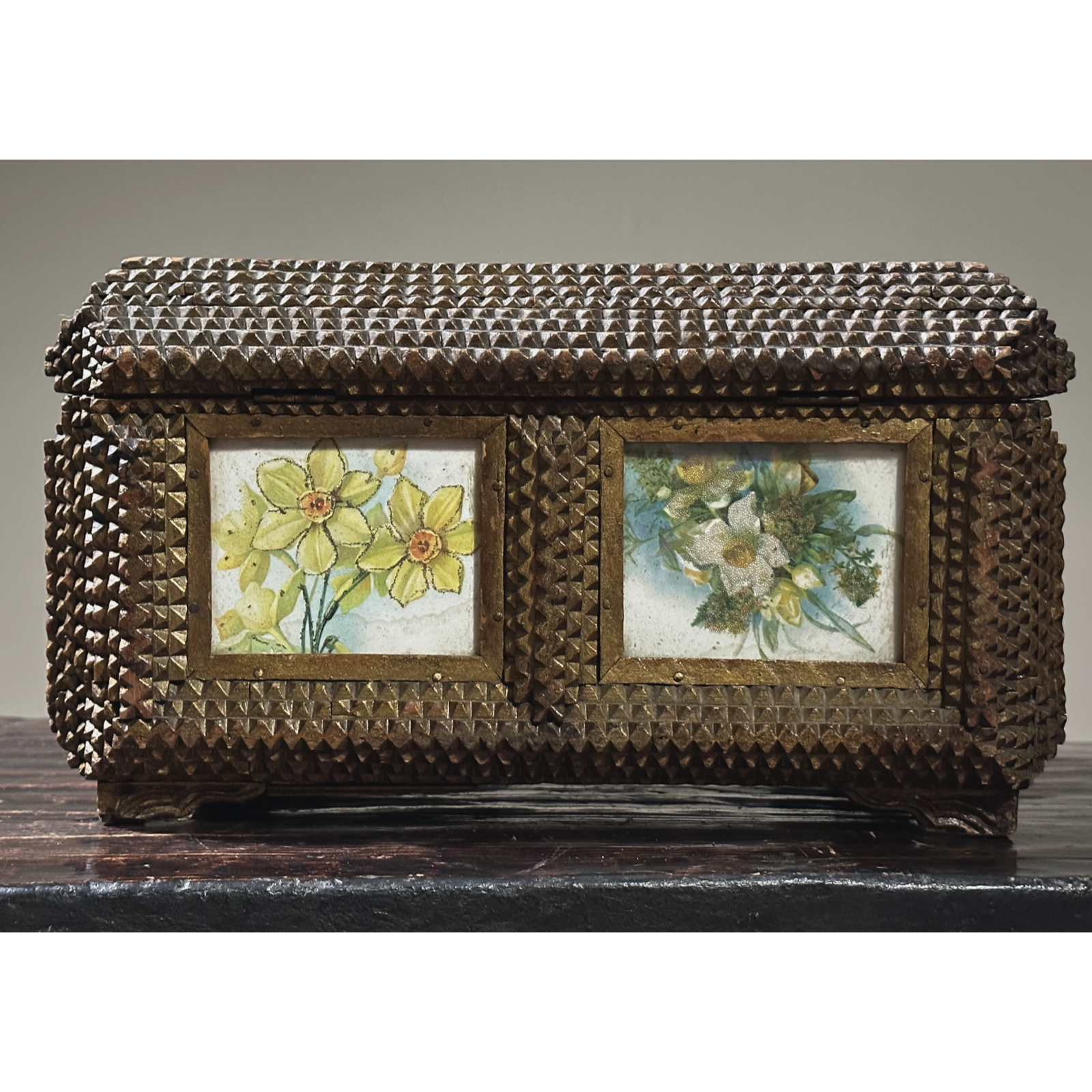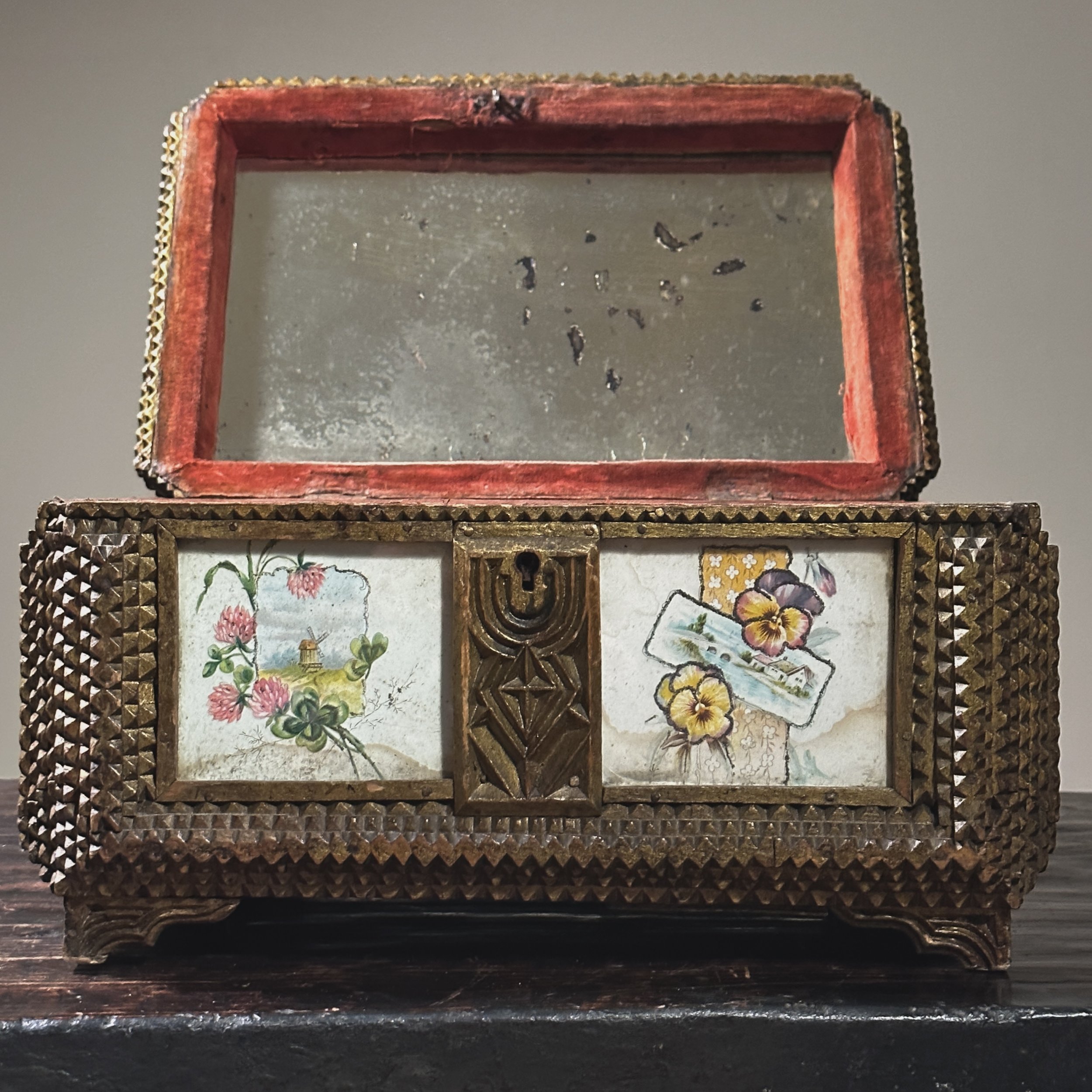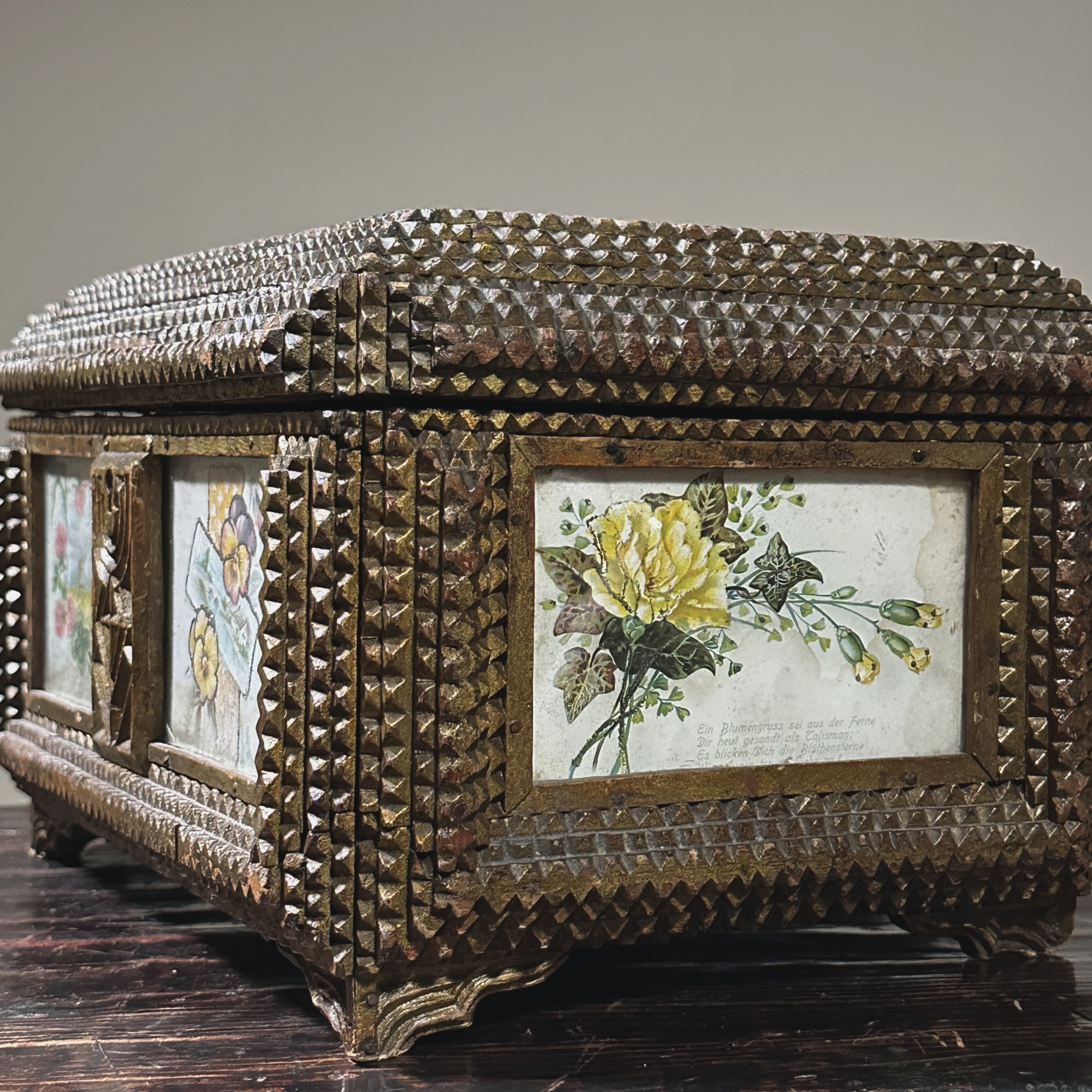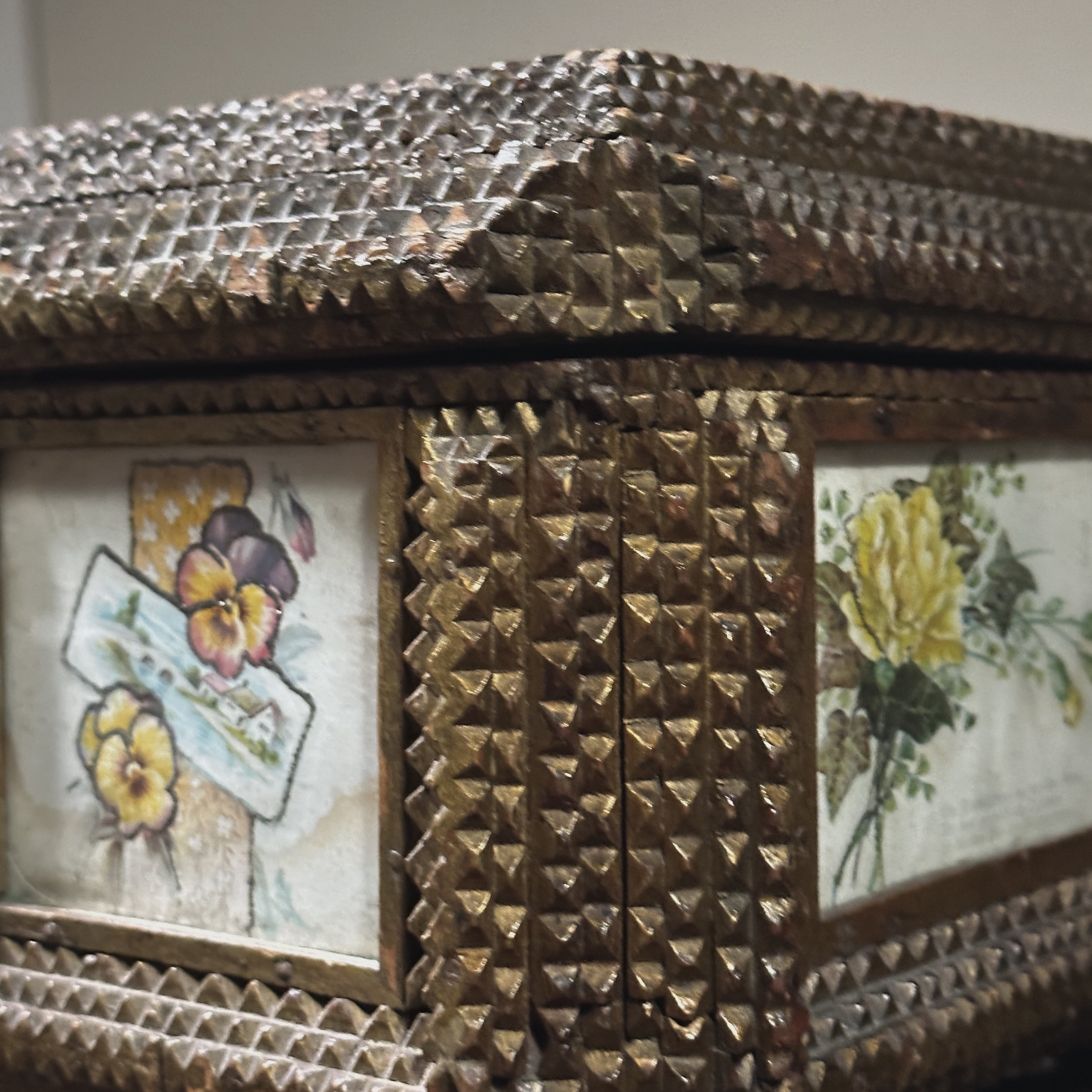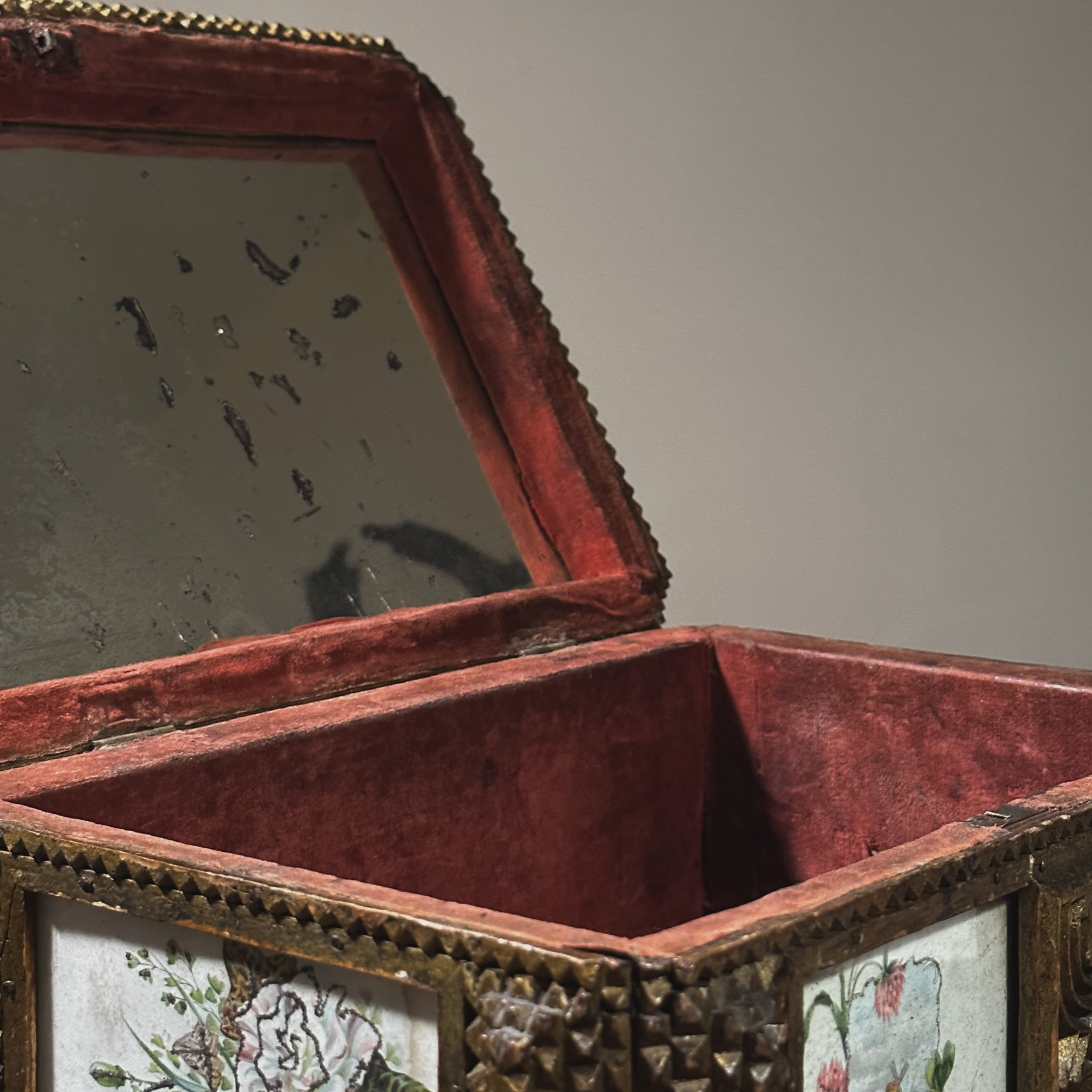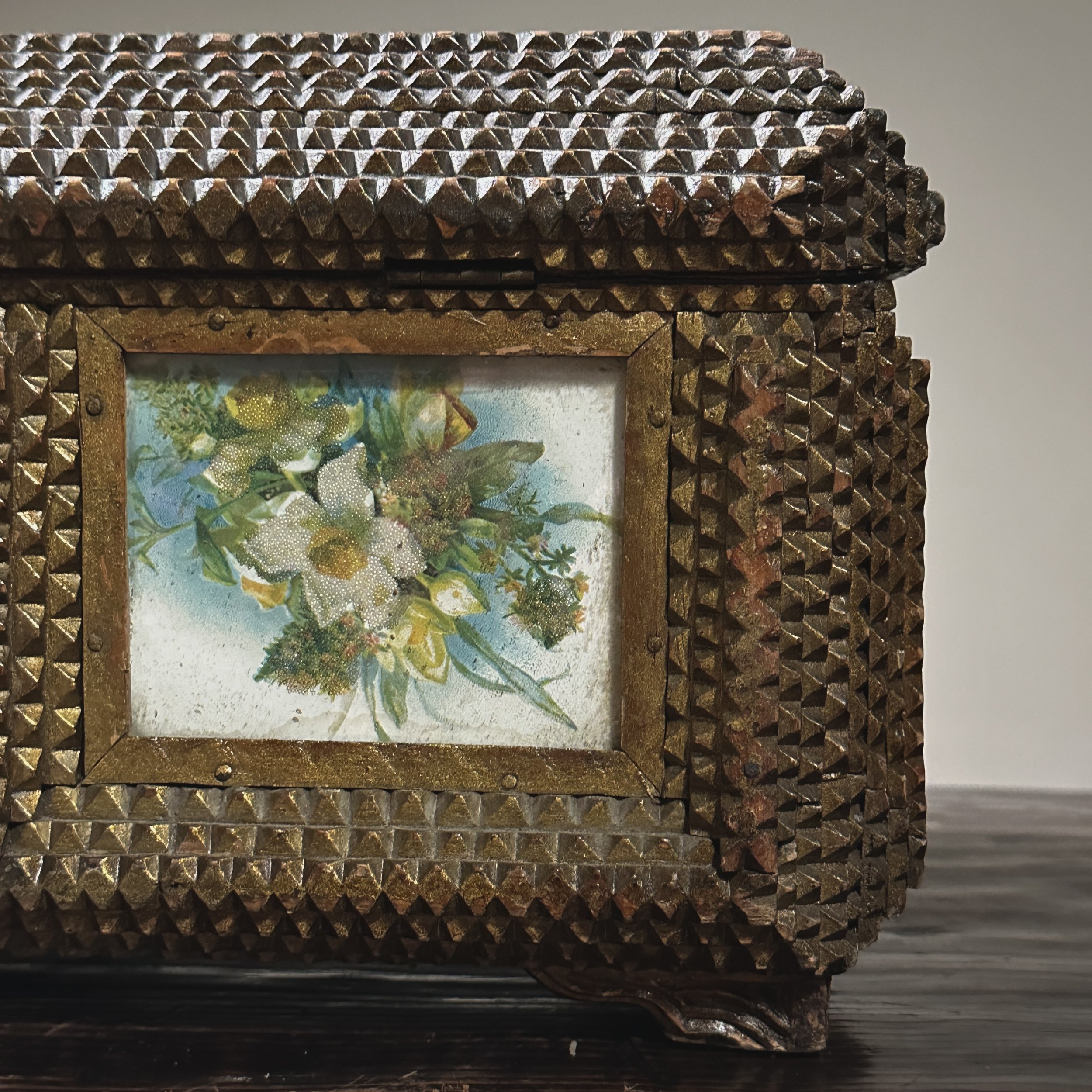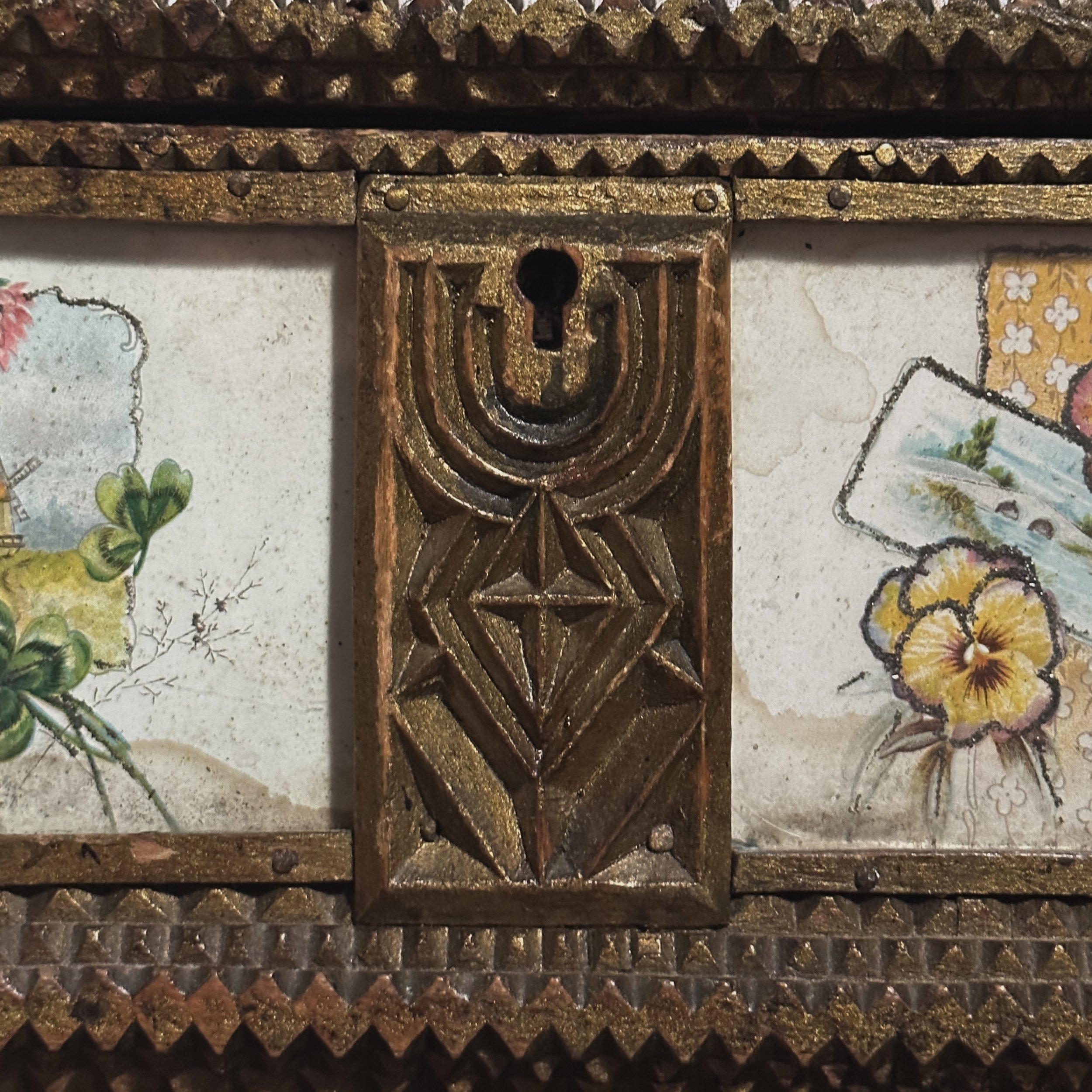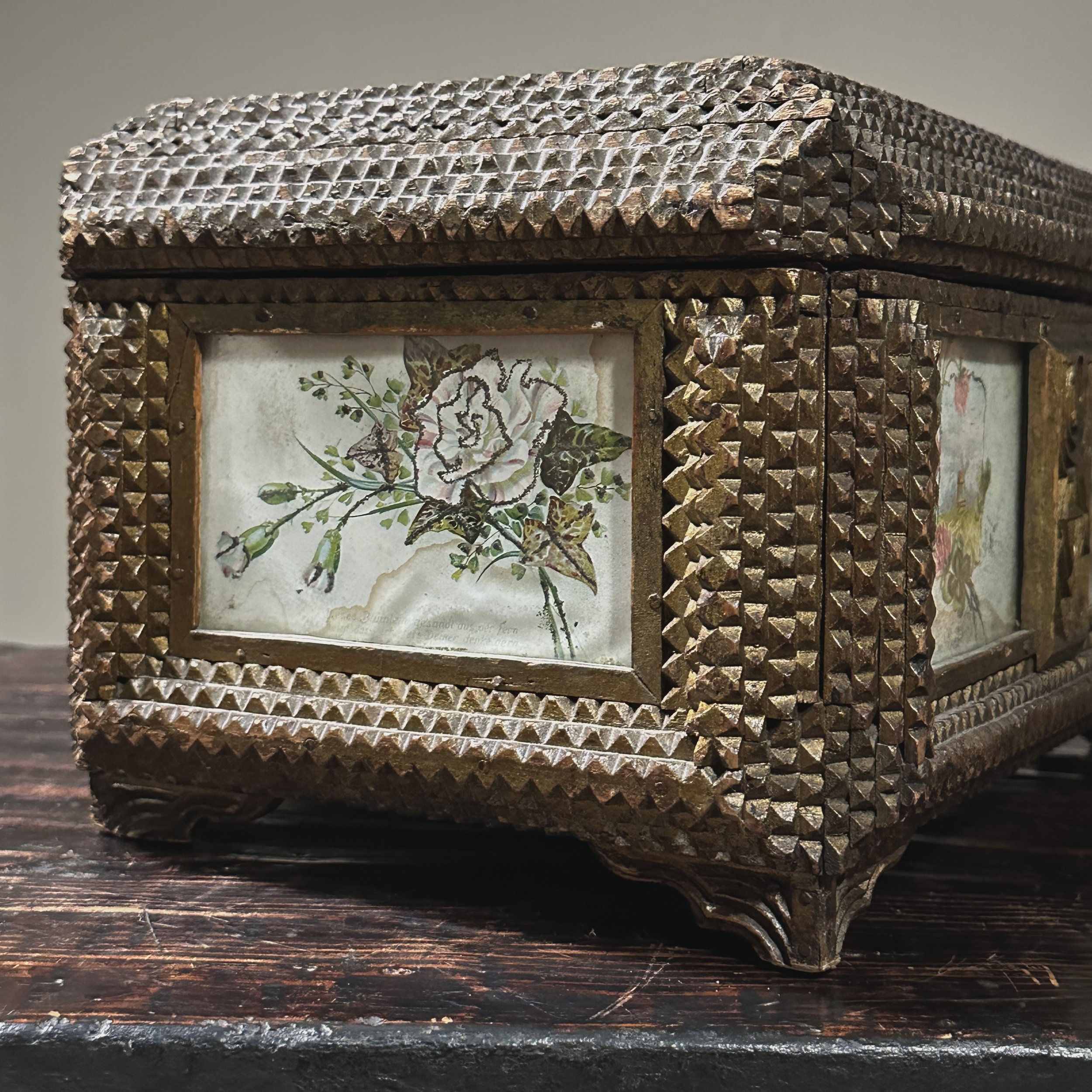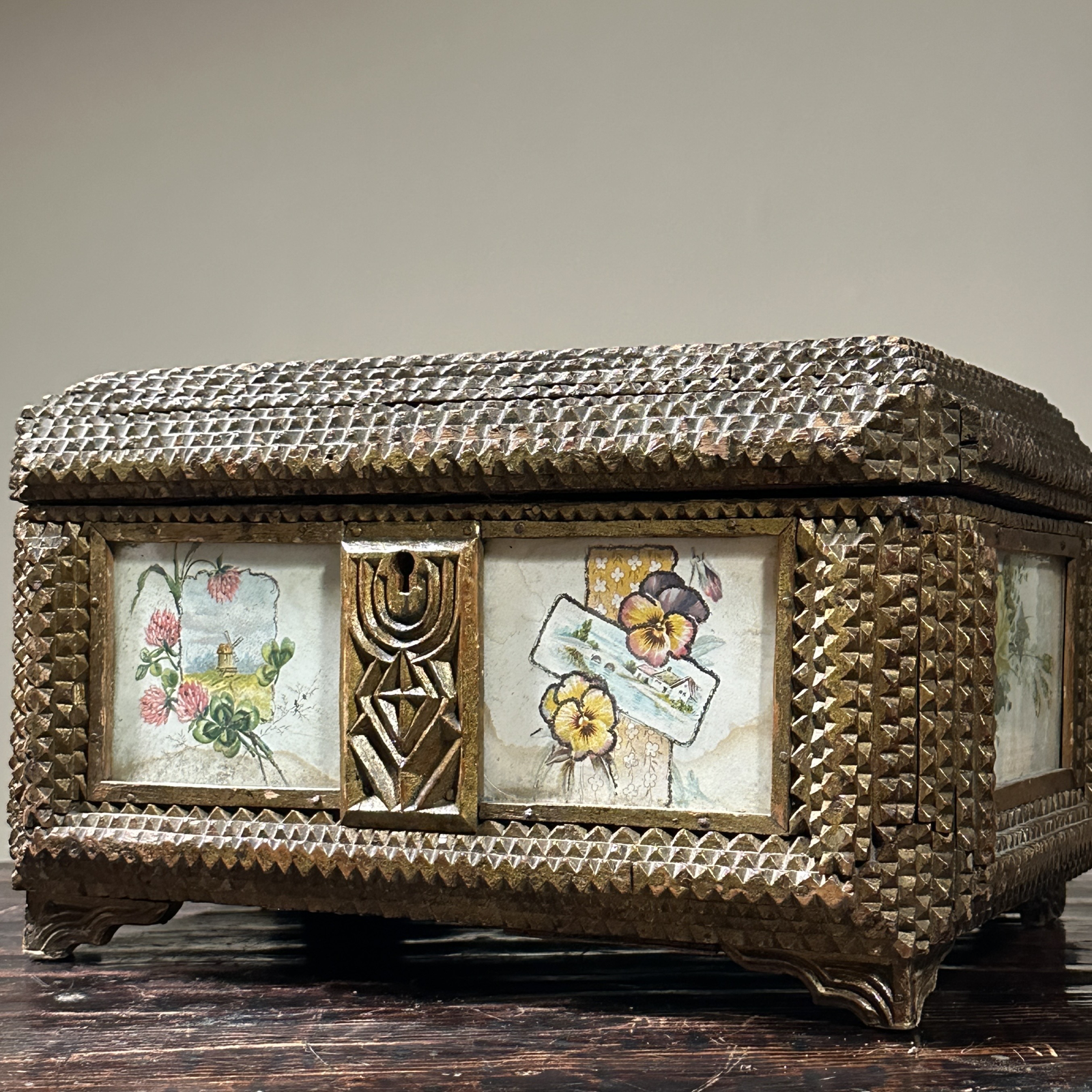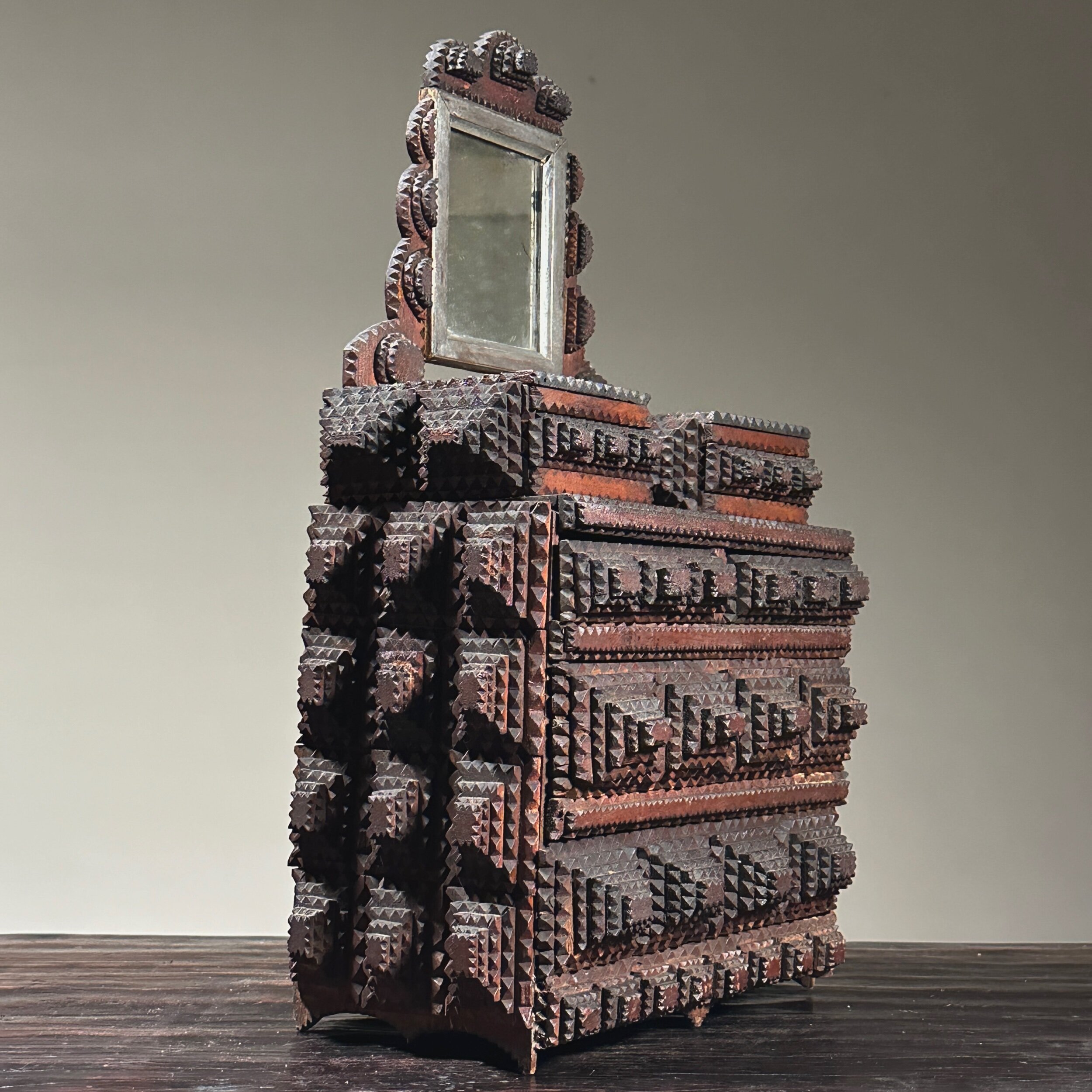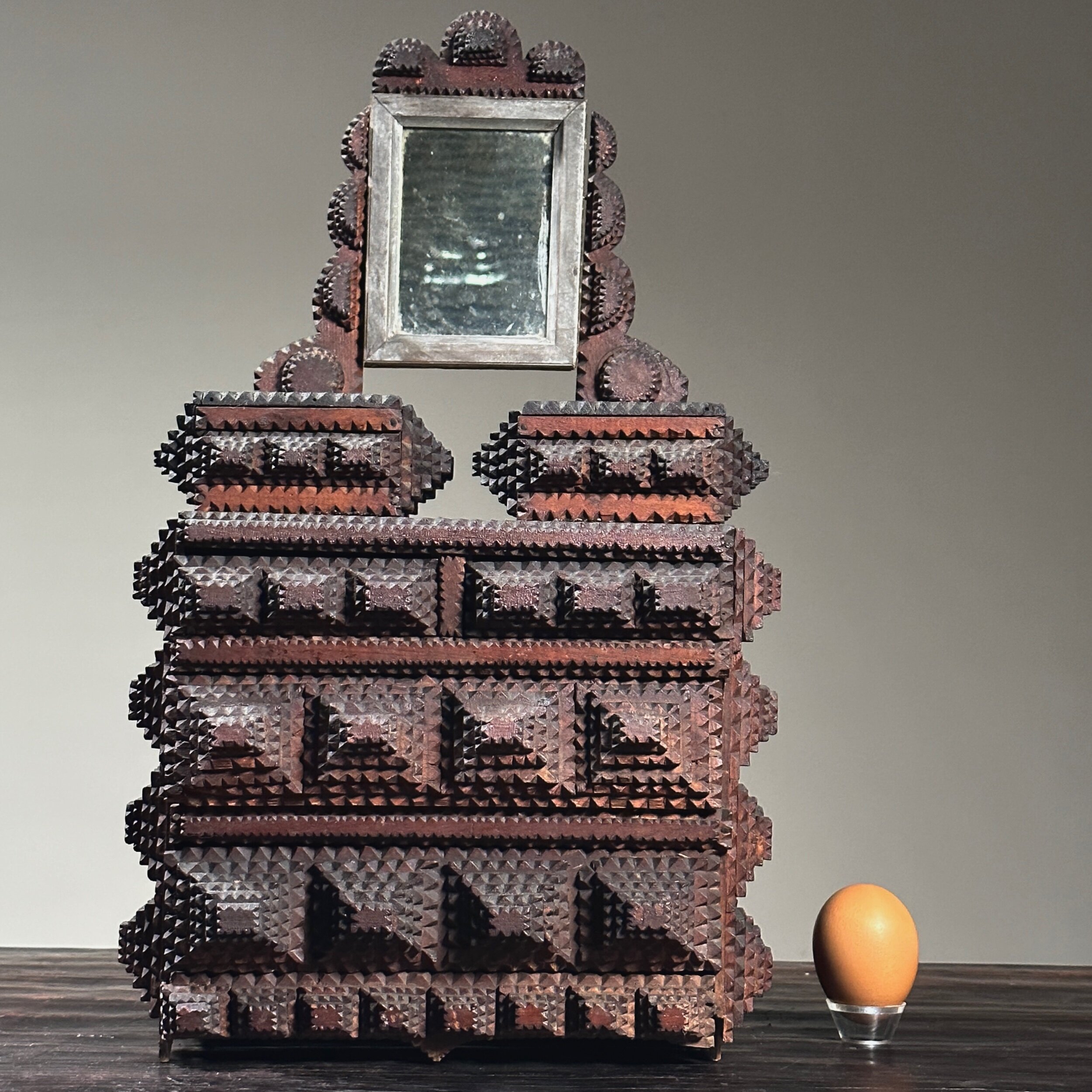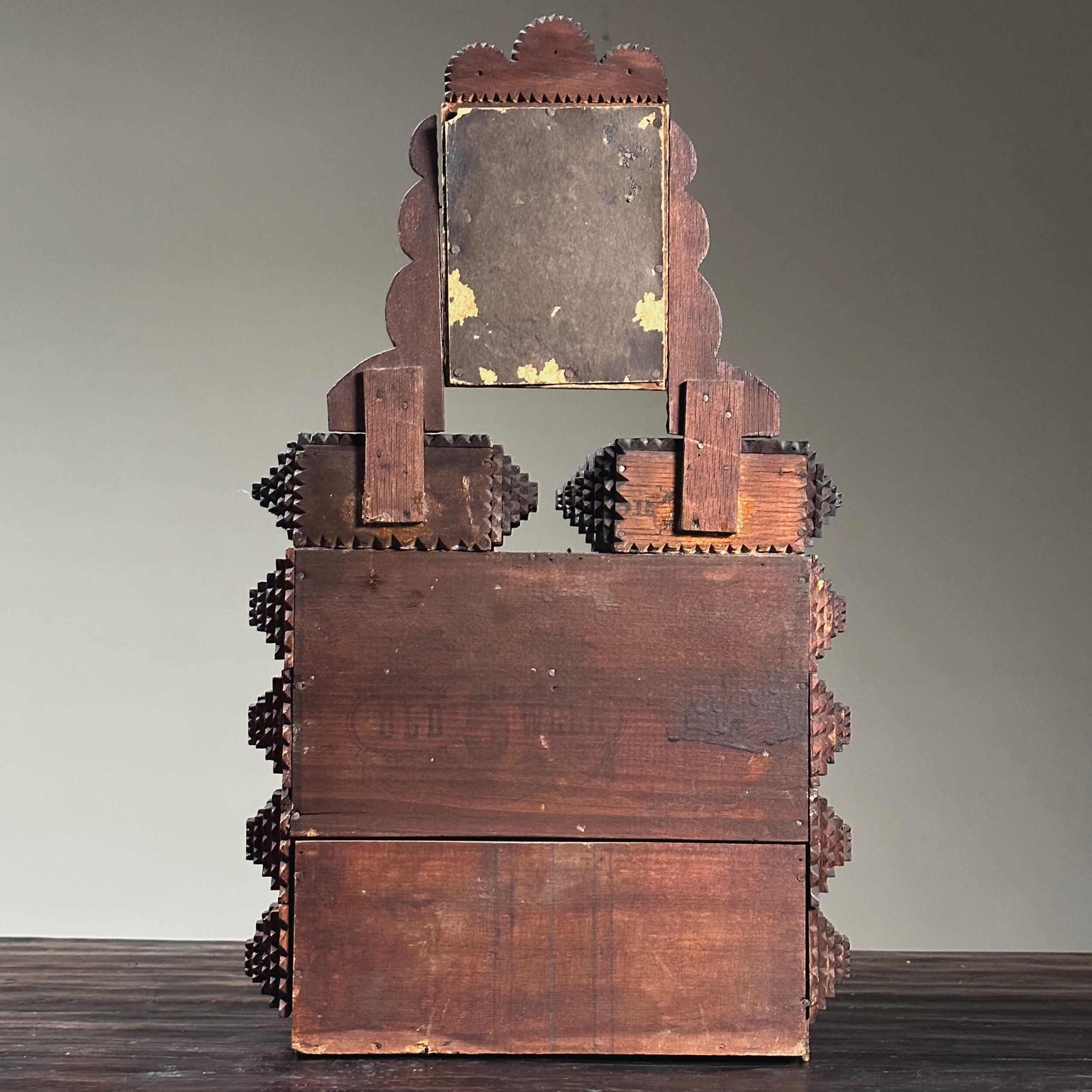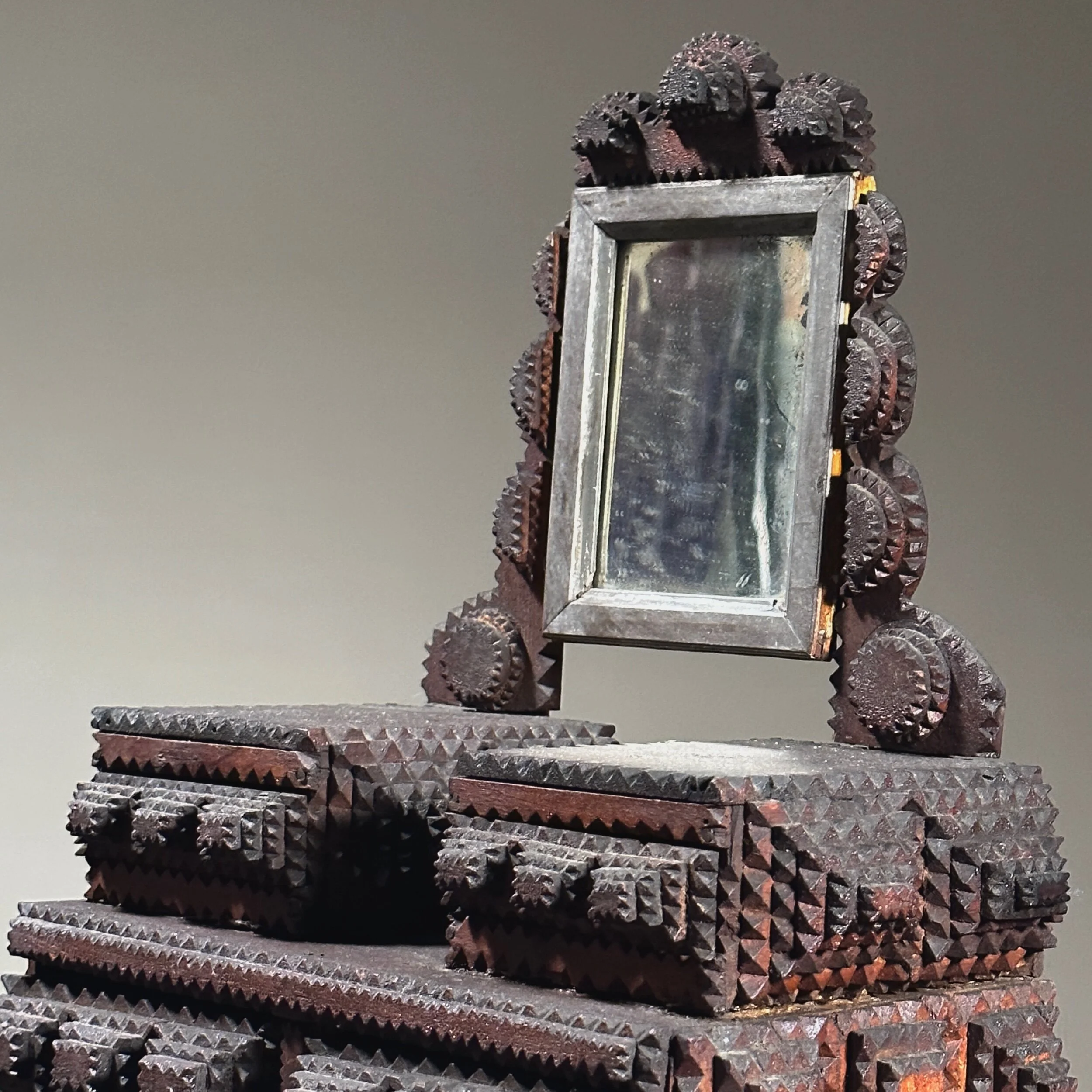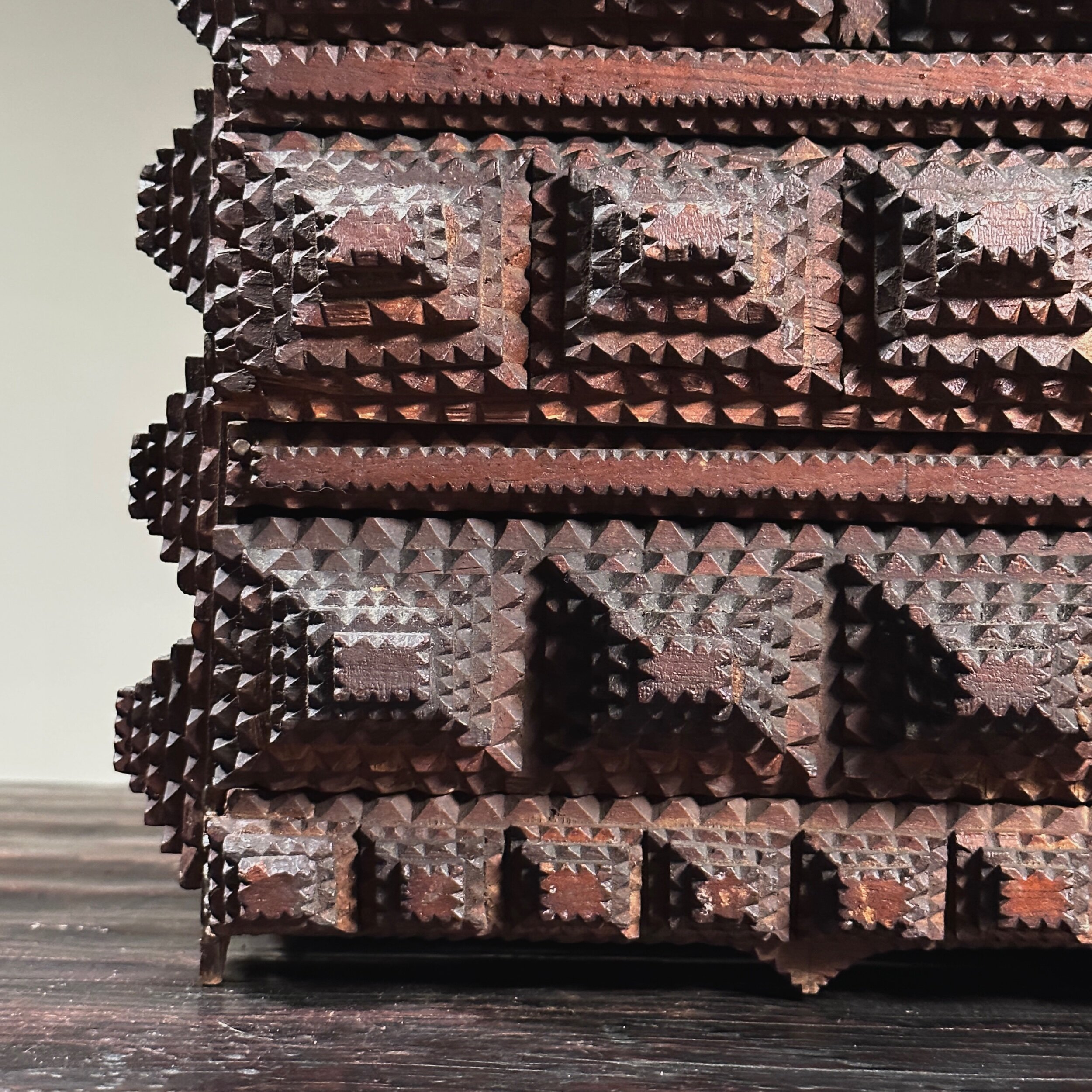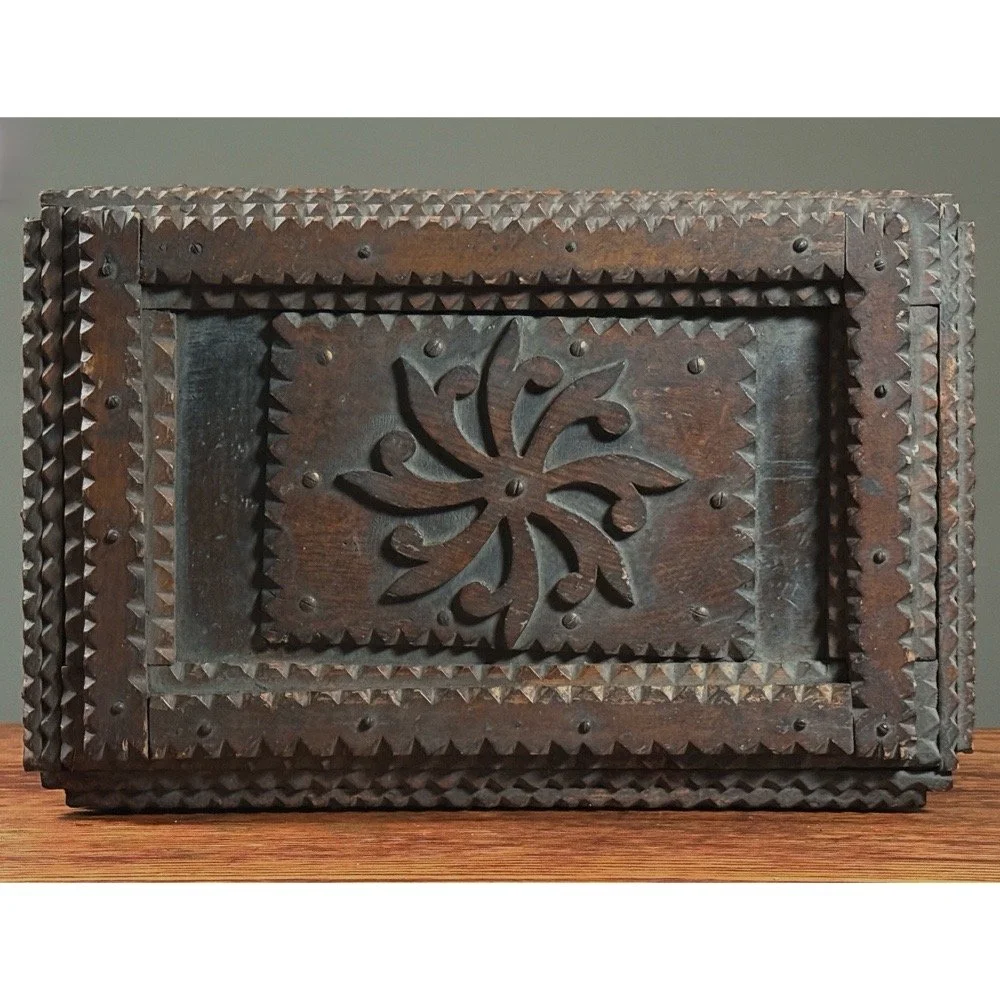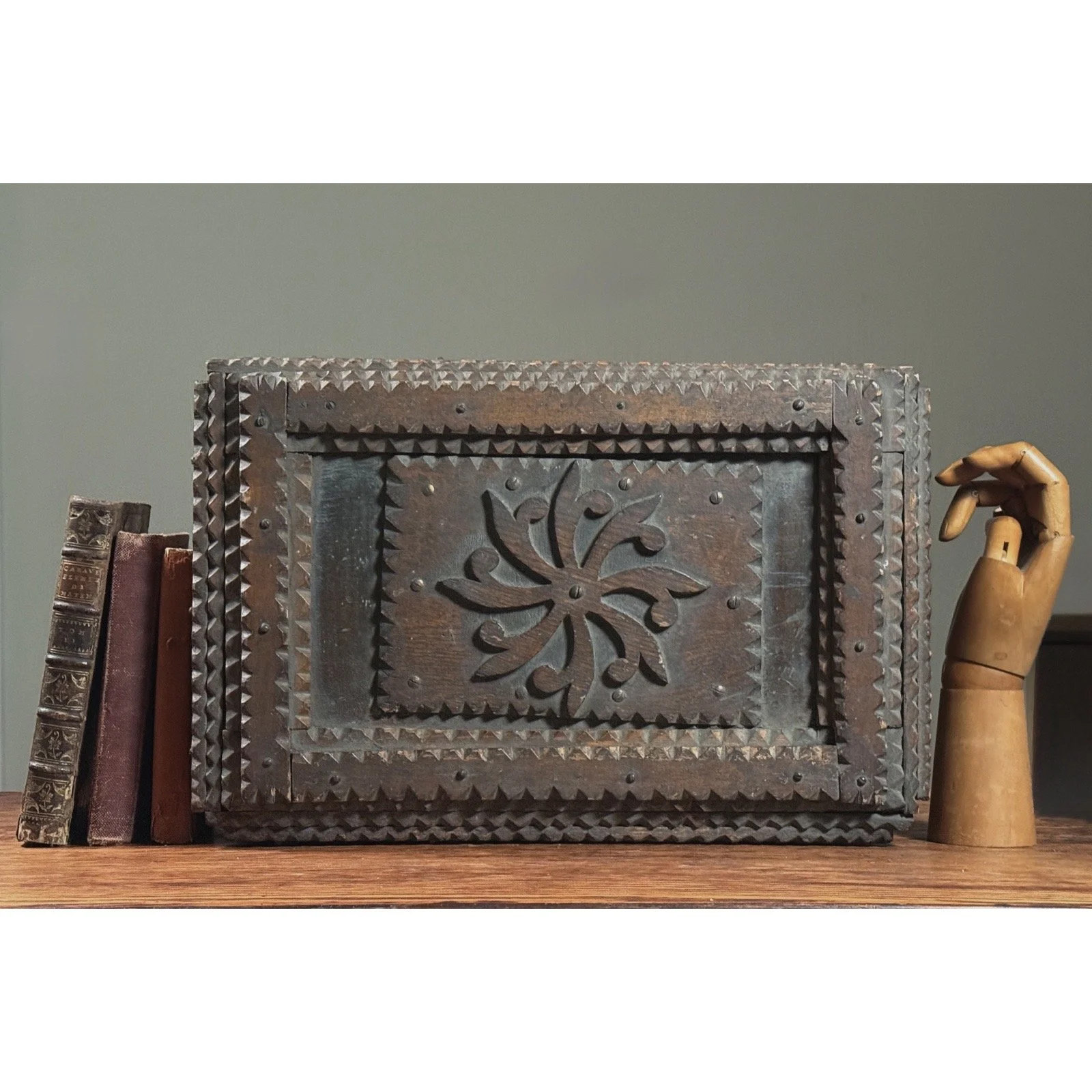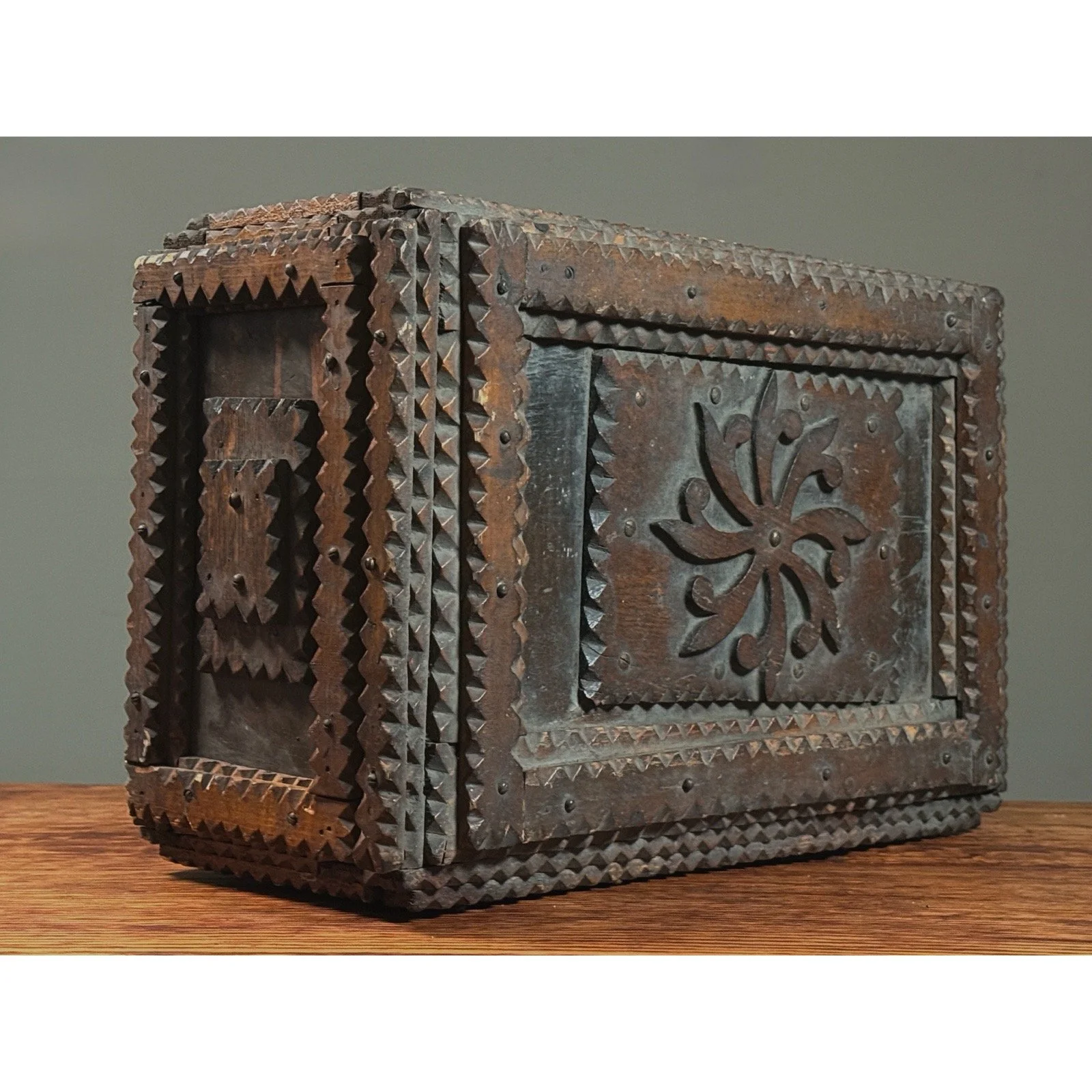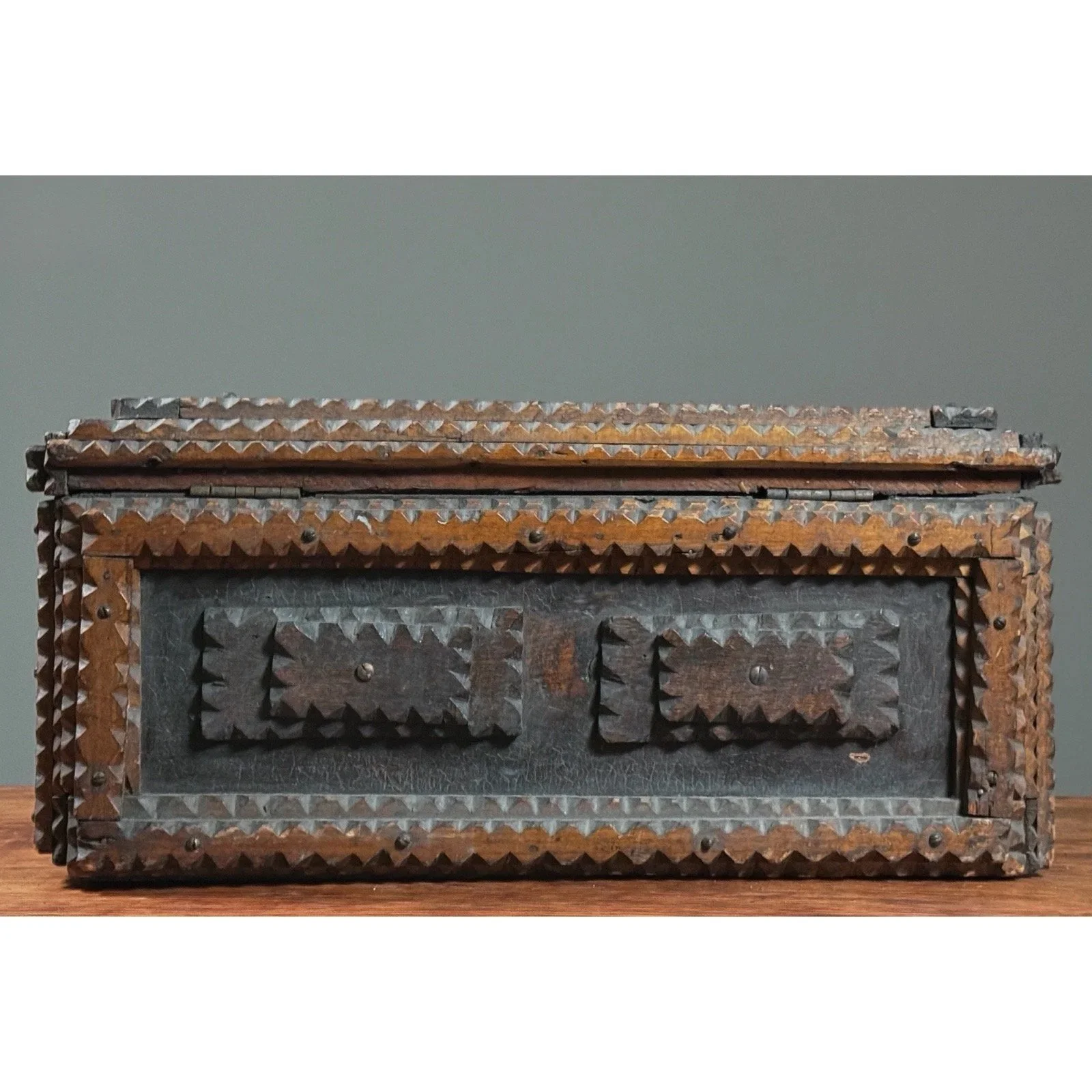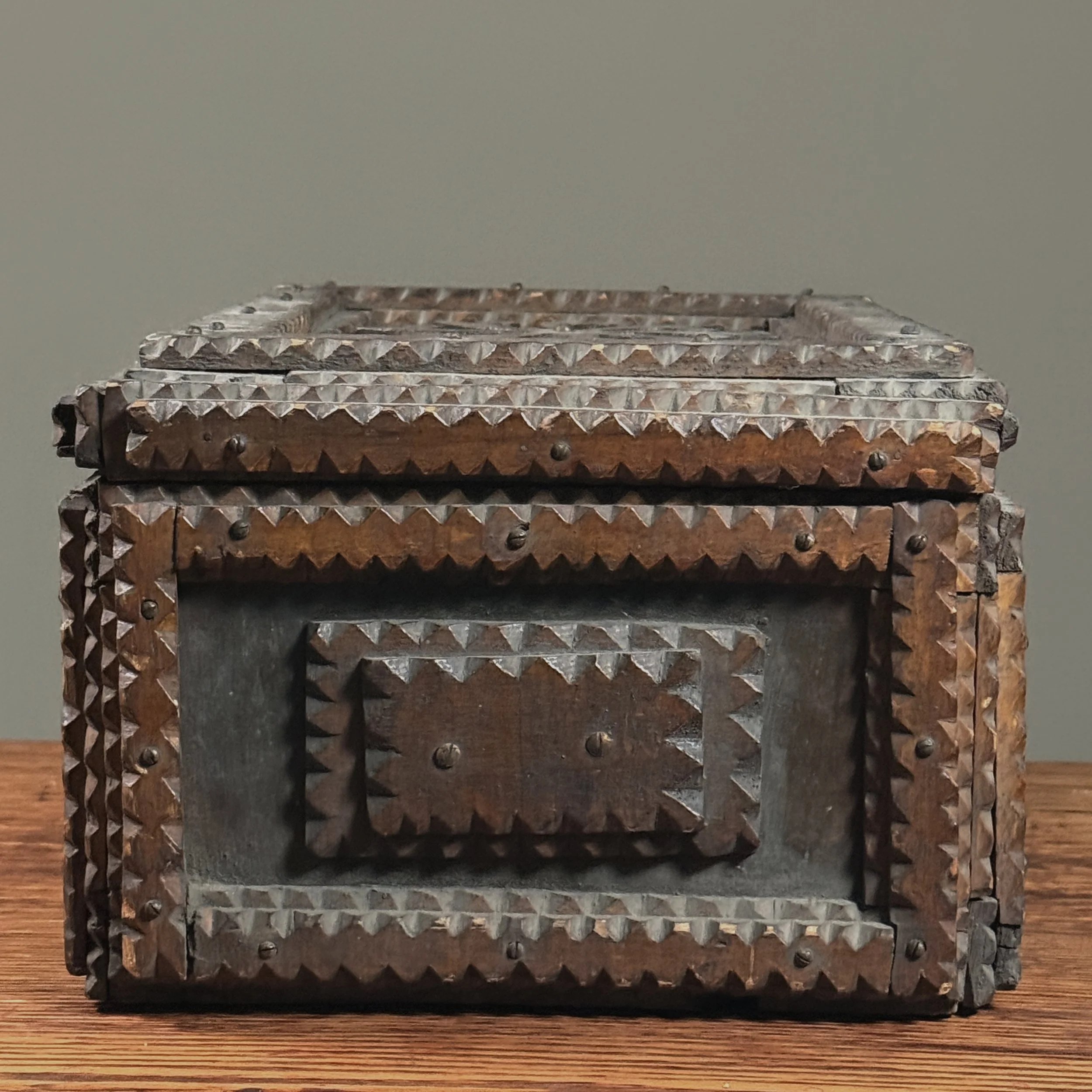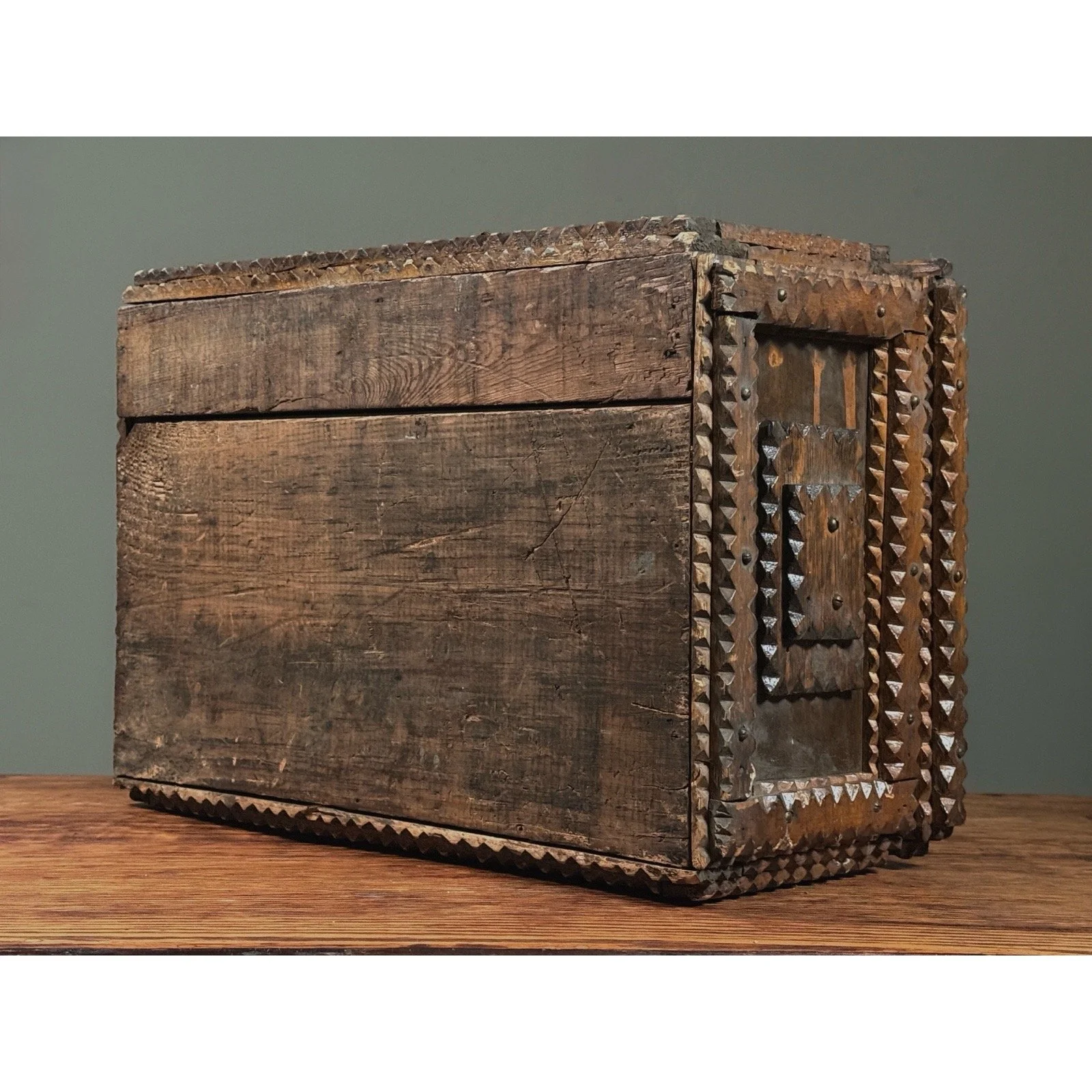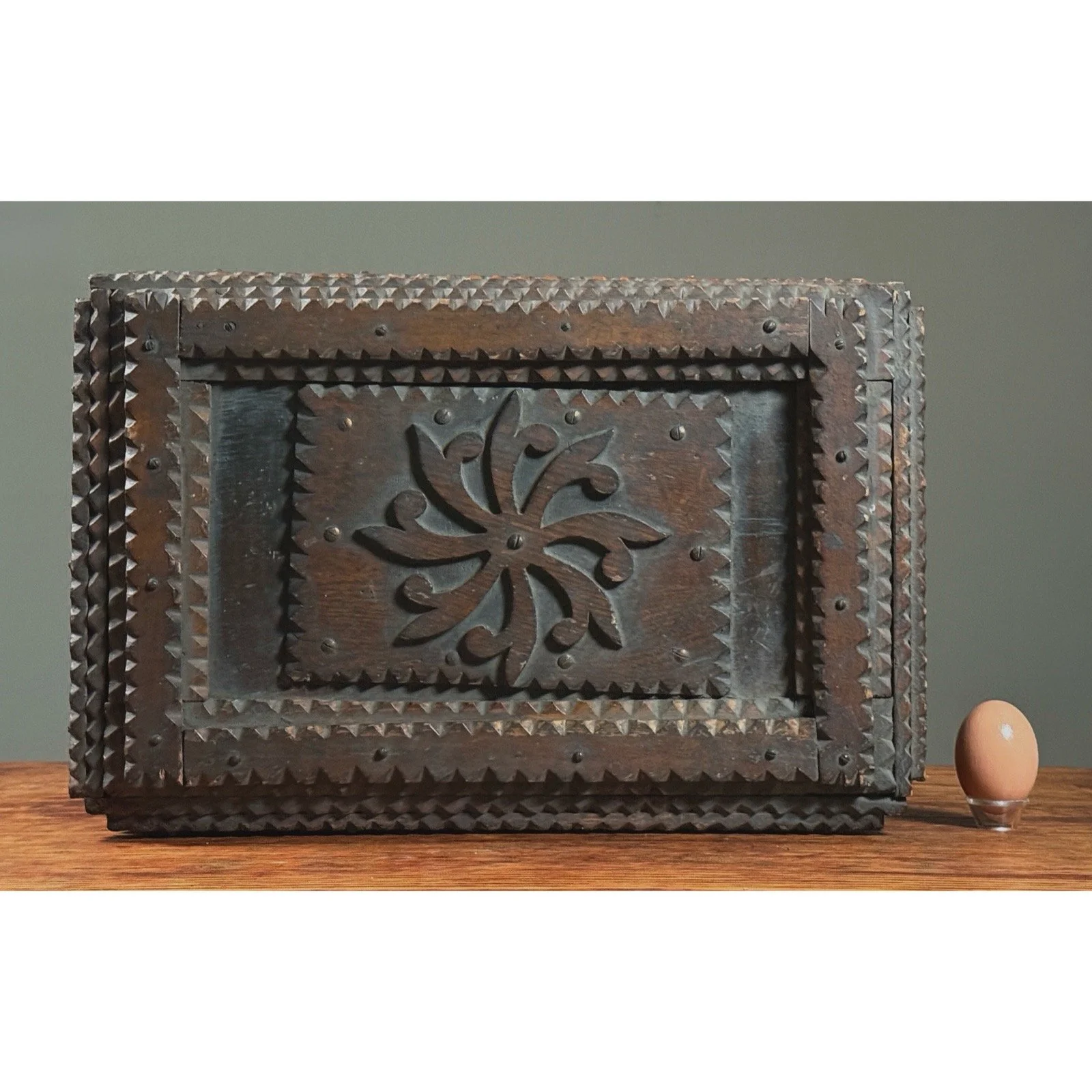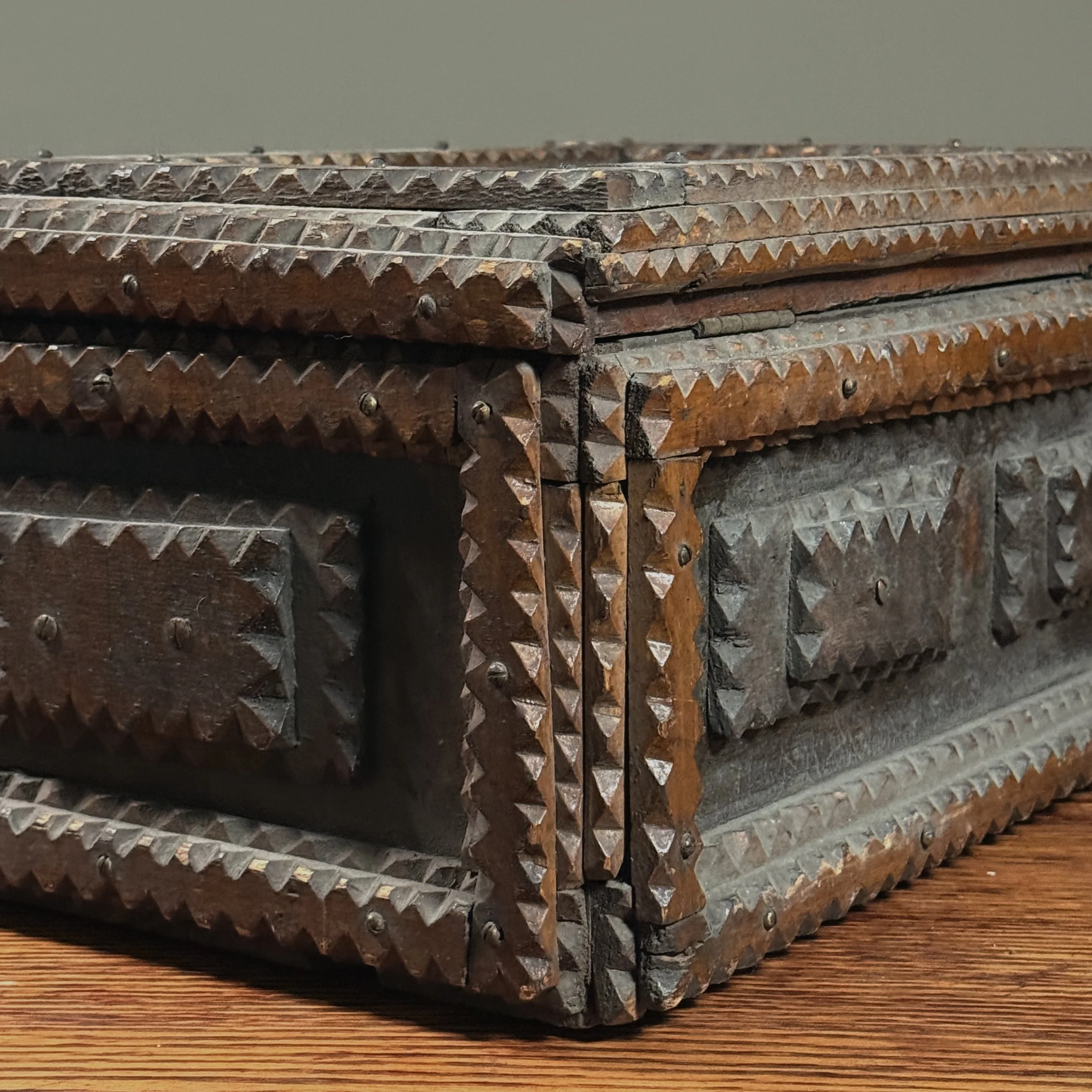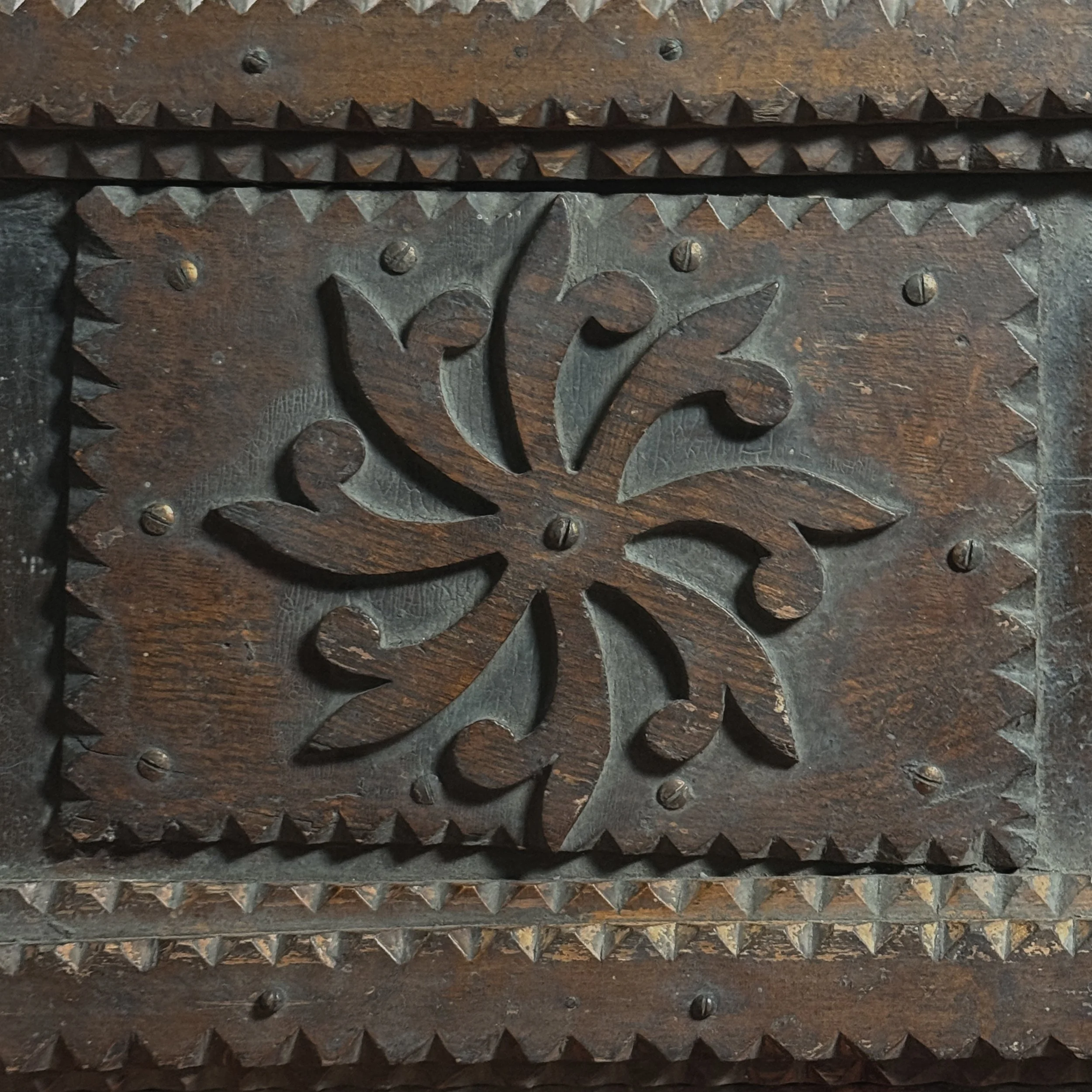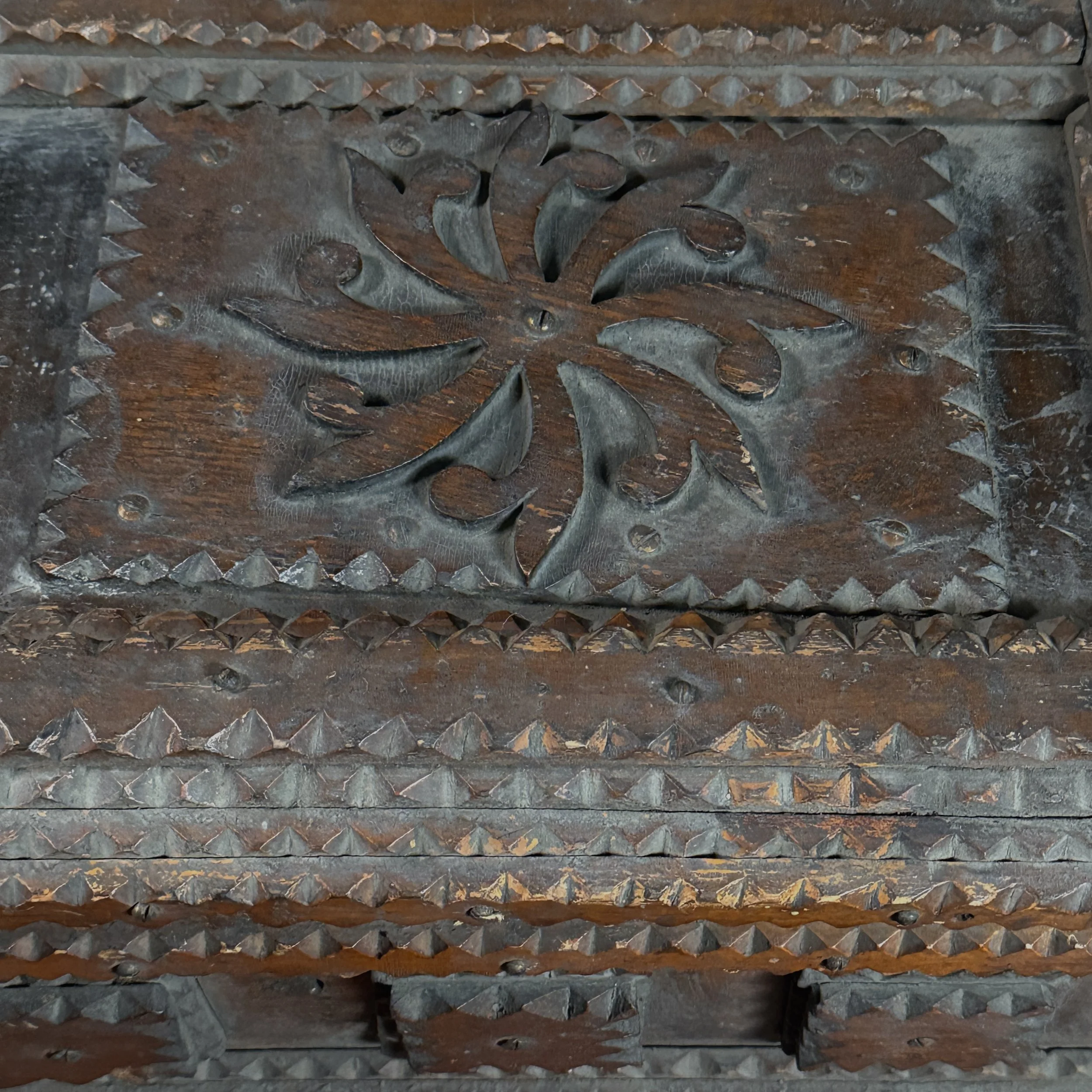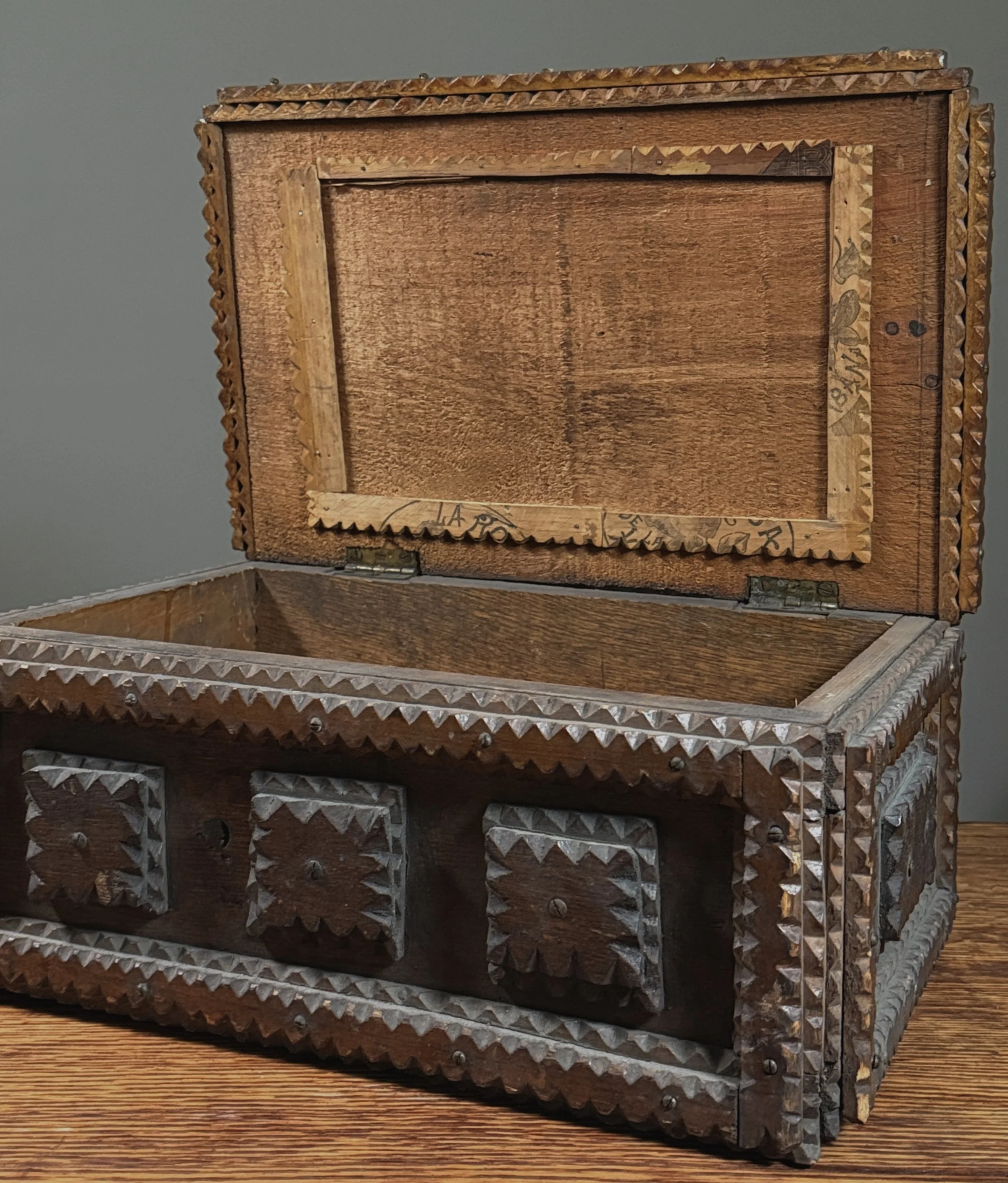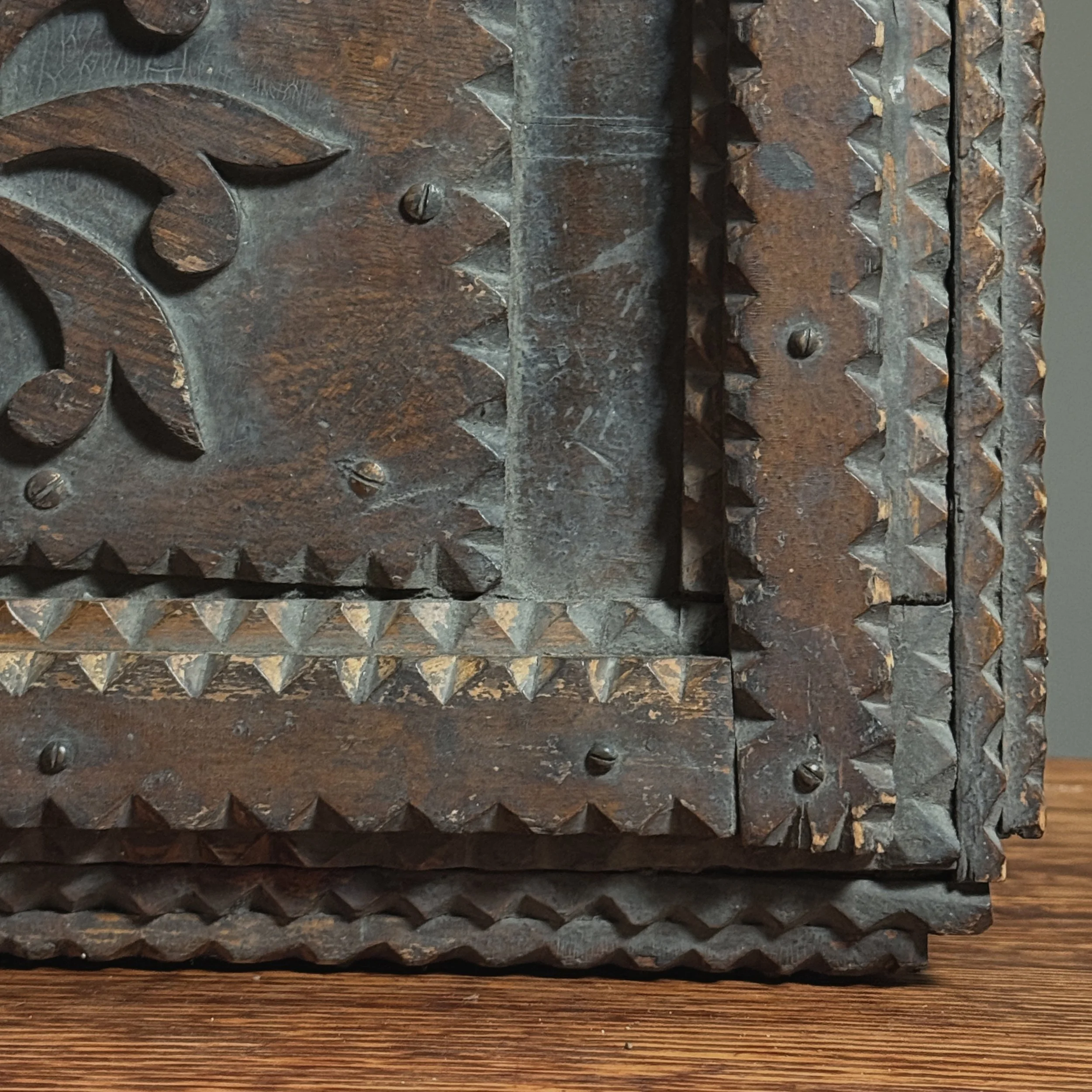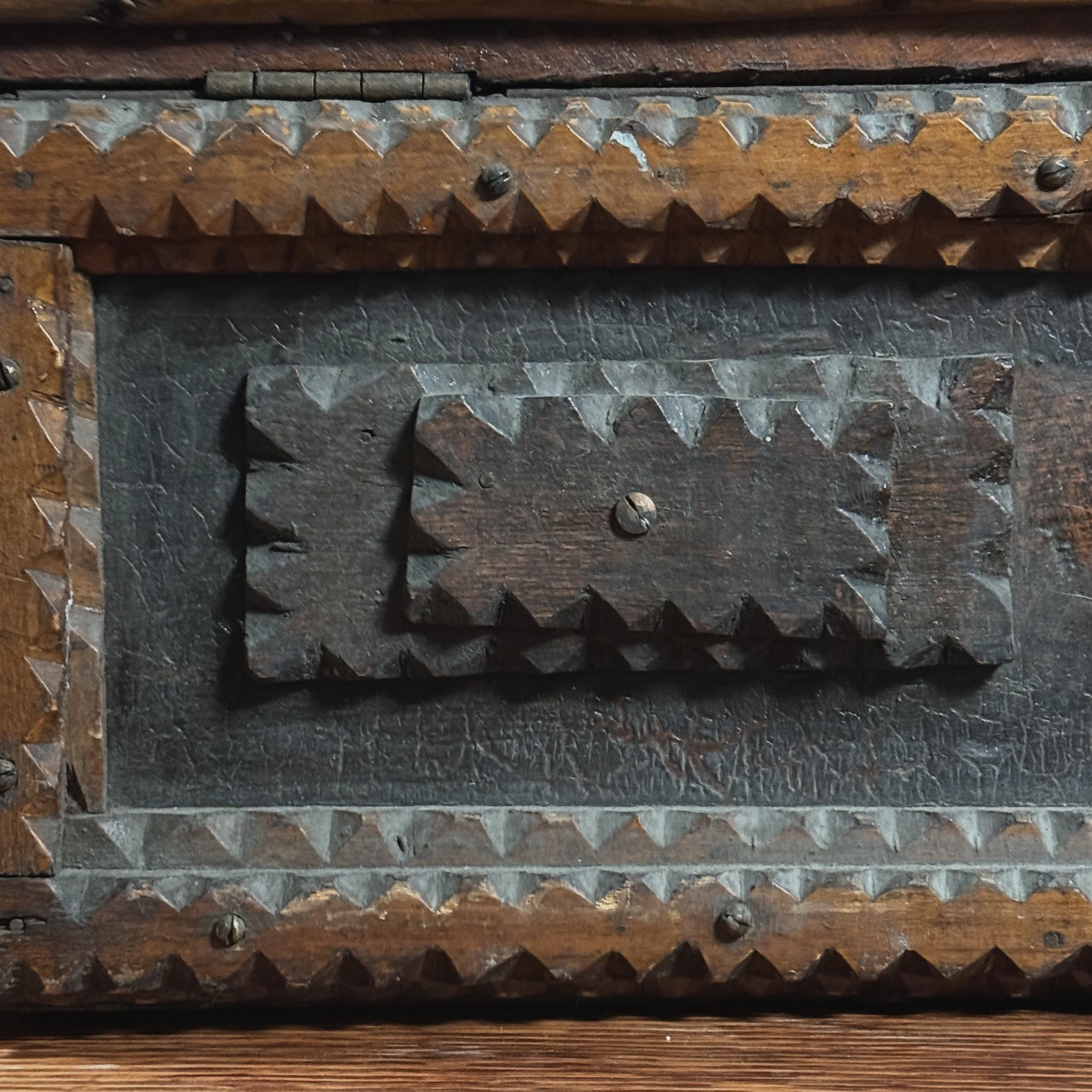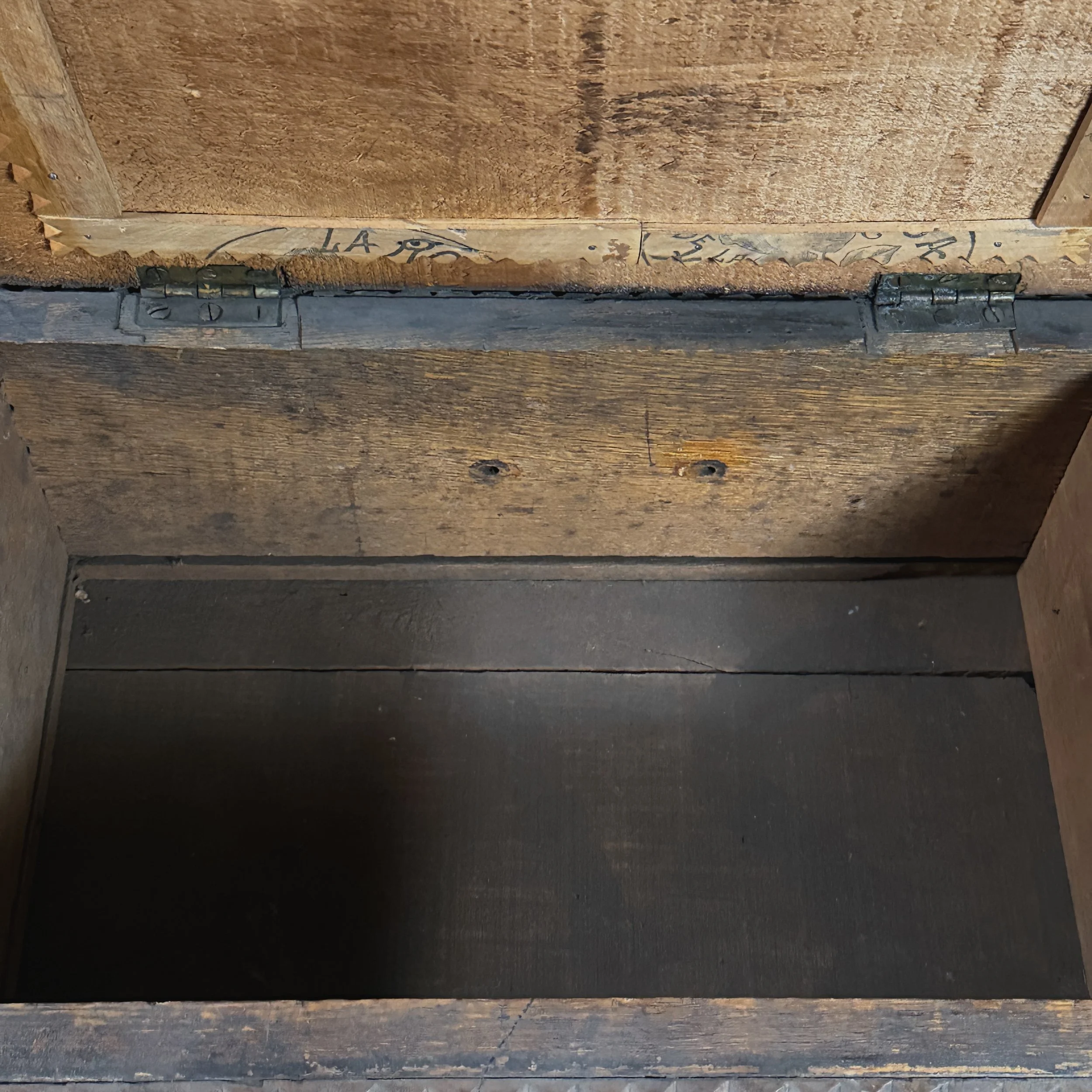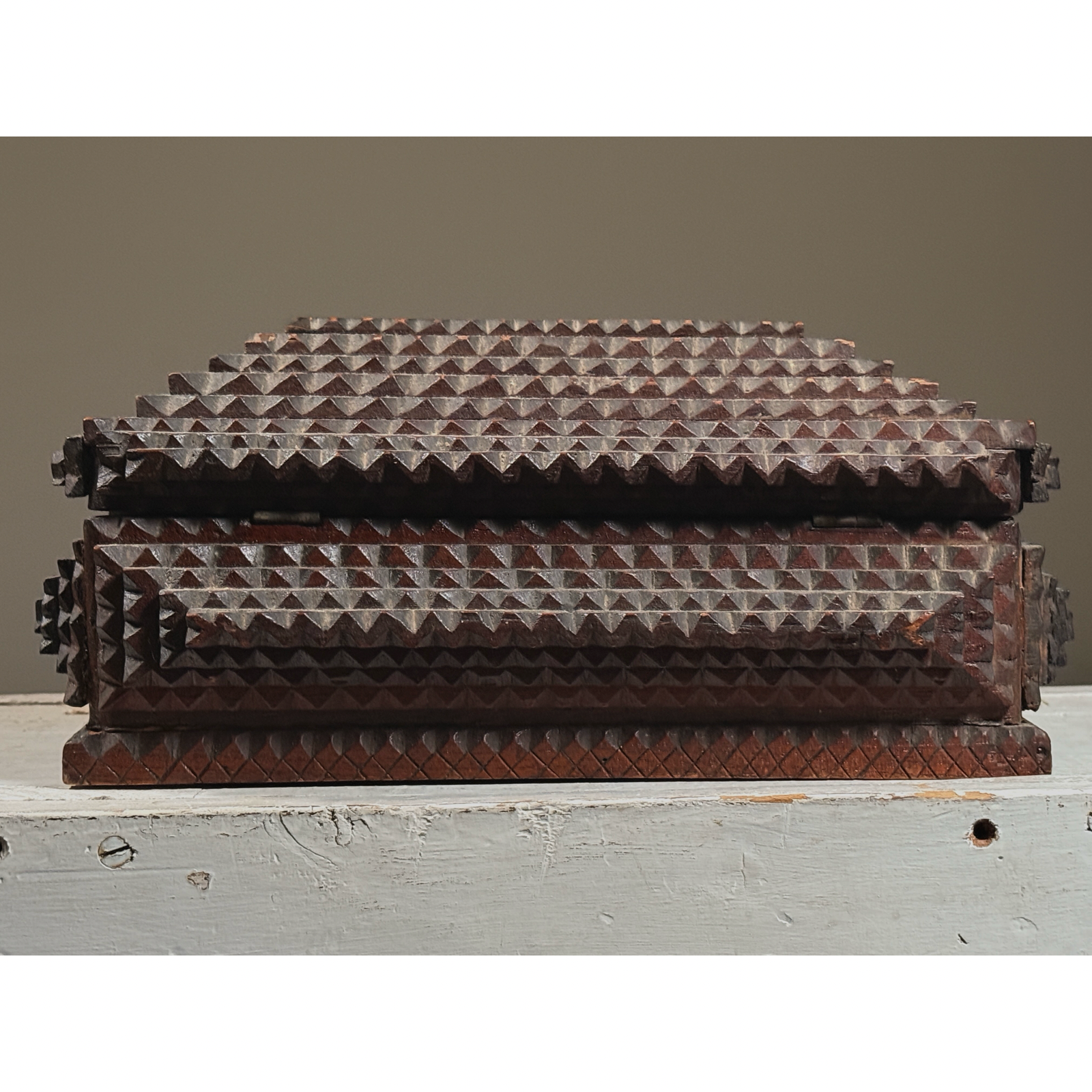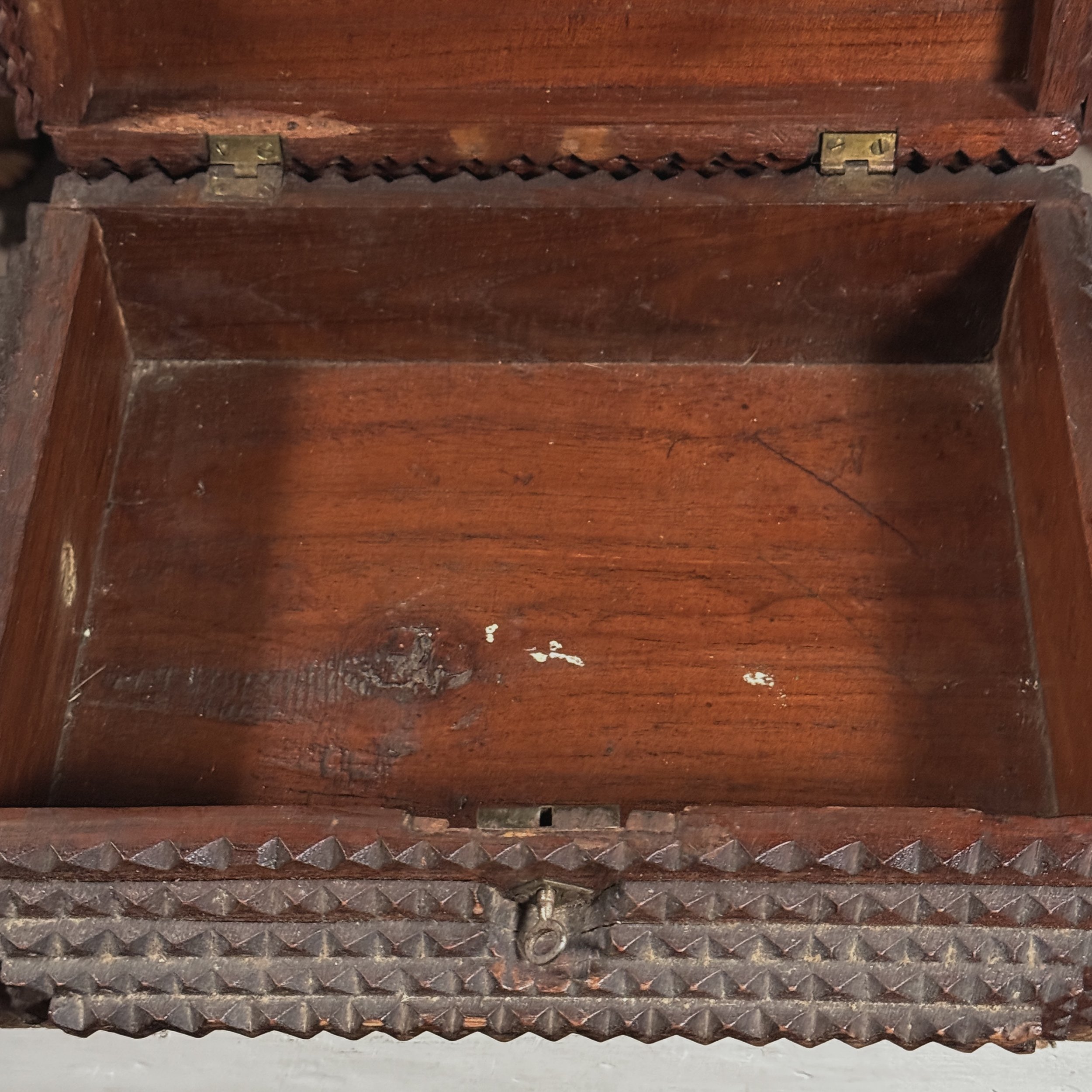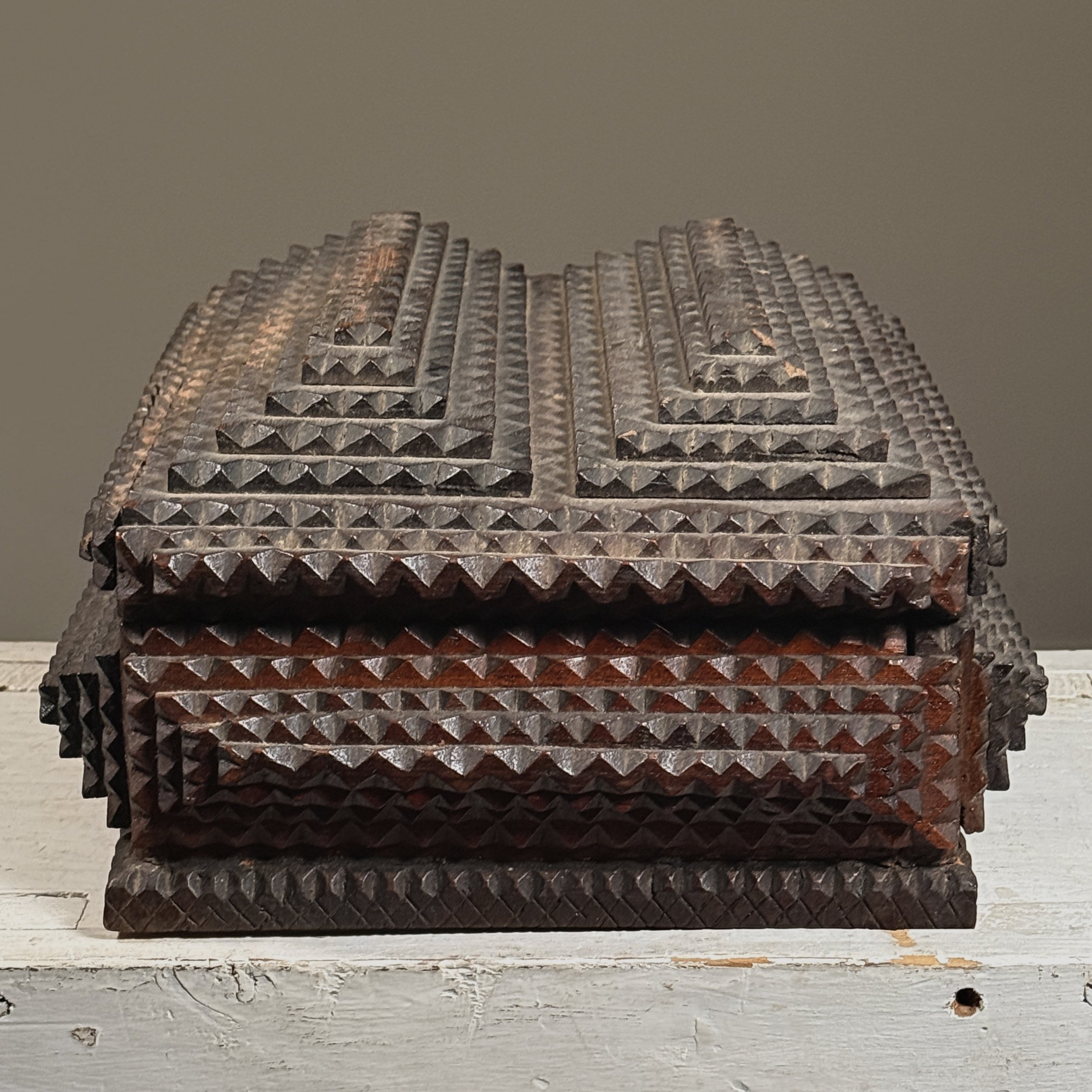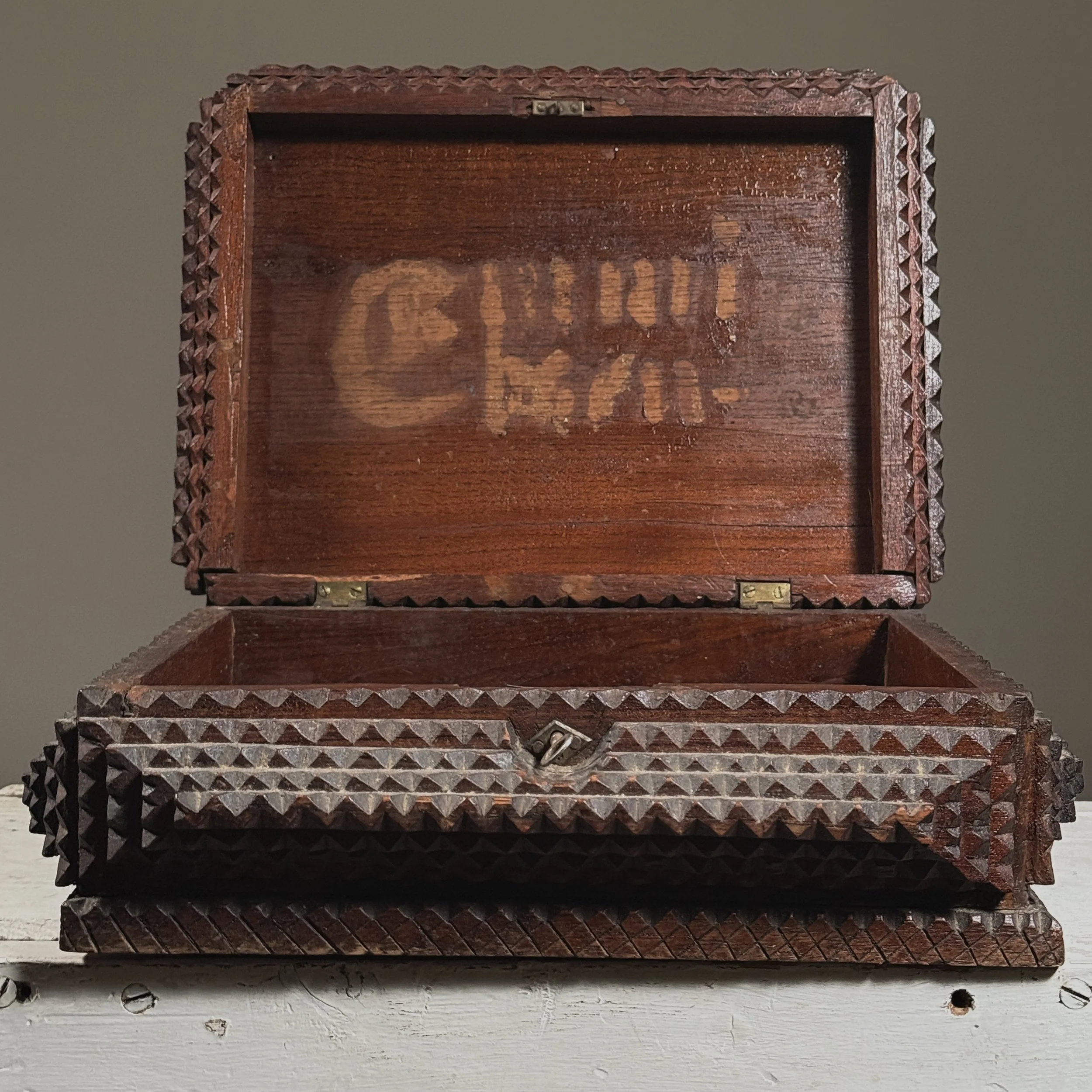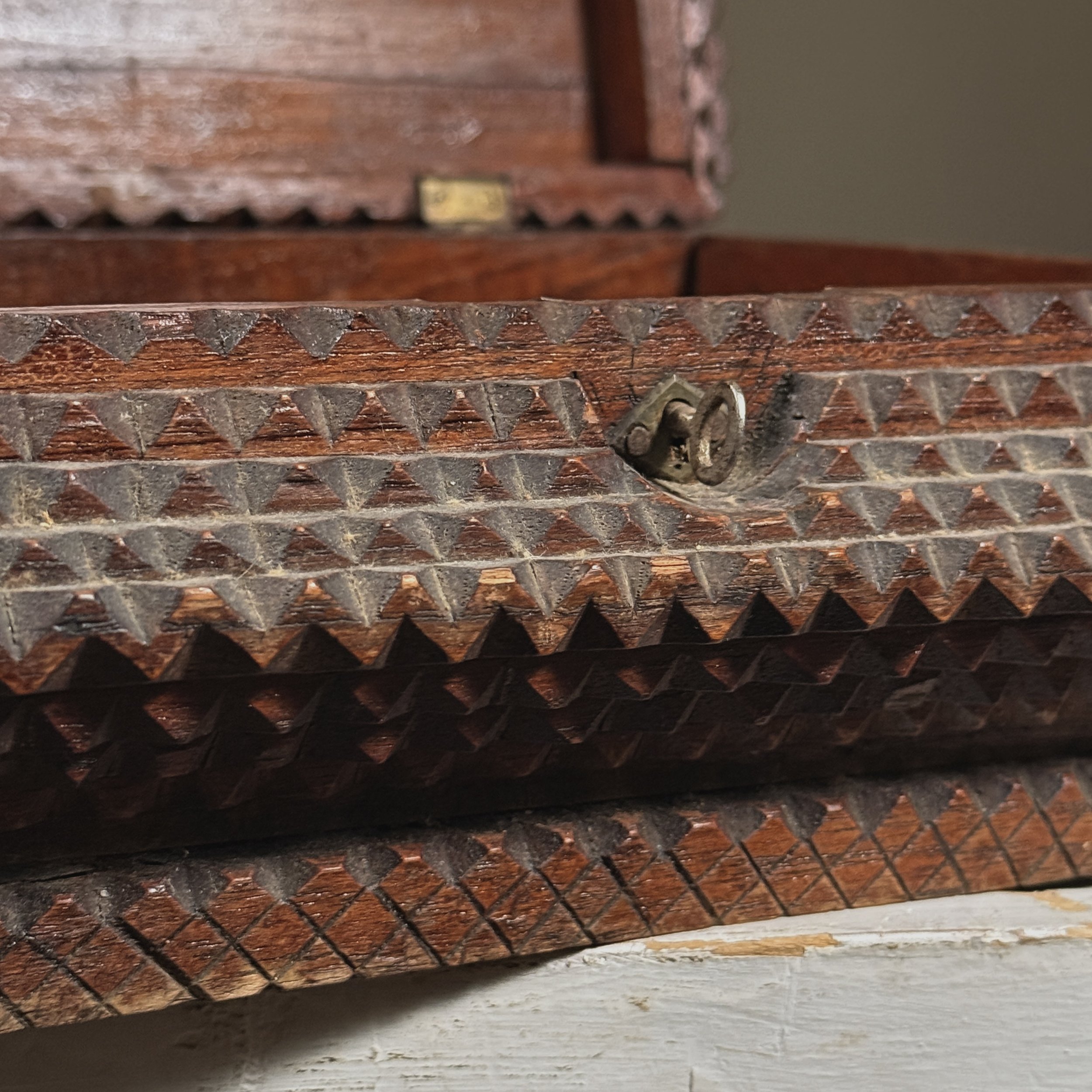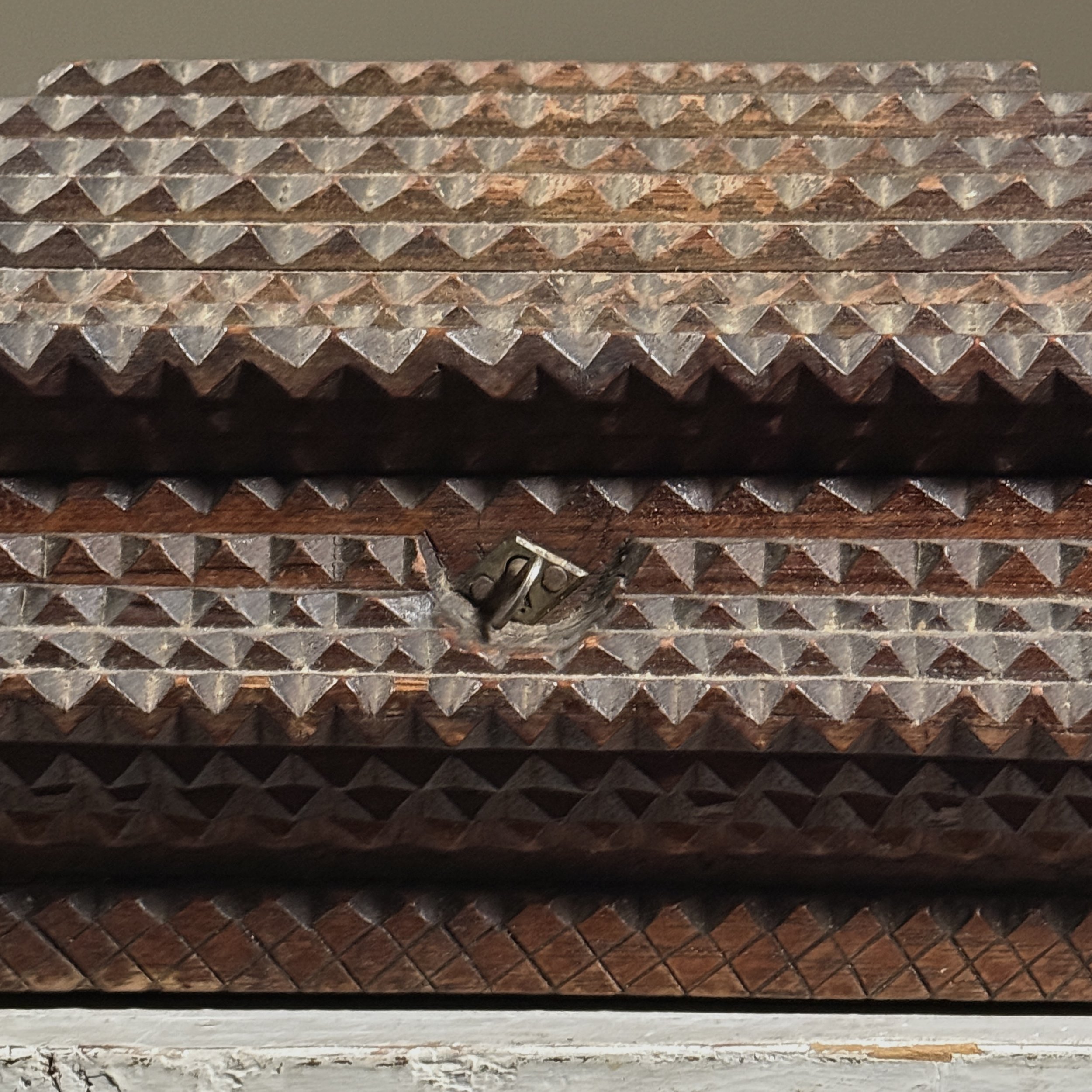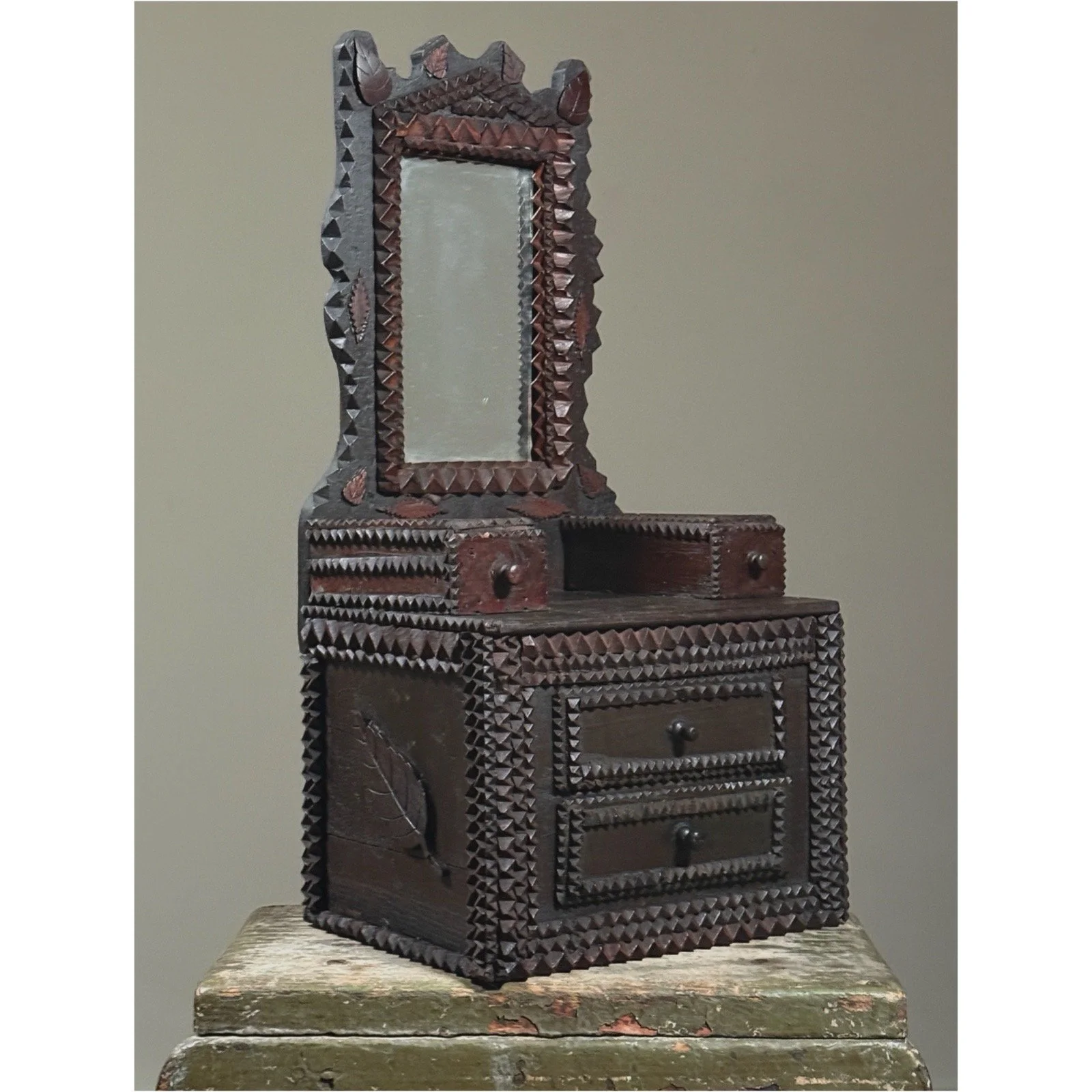 Image 1 of 14
Image 1 of 14

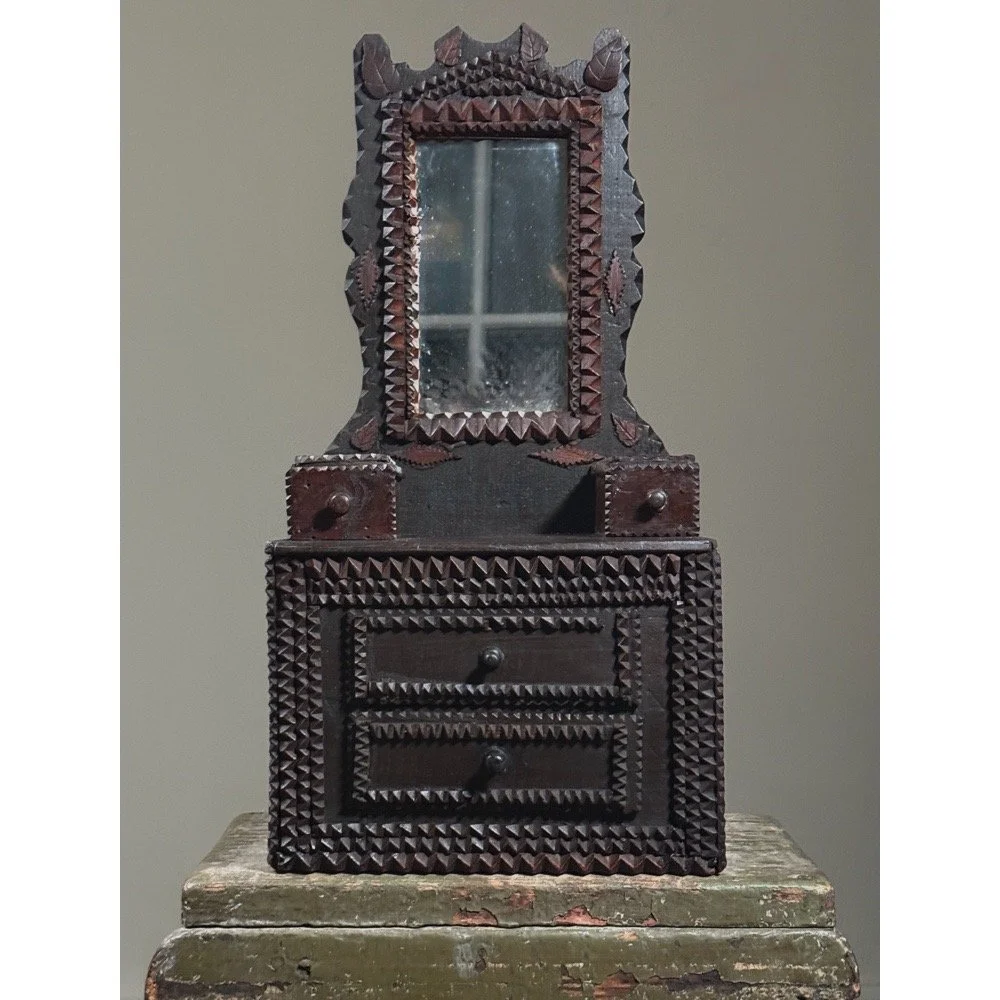 Image 2 of 14
Image 2 of 14

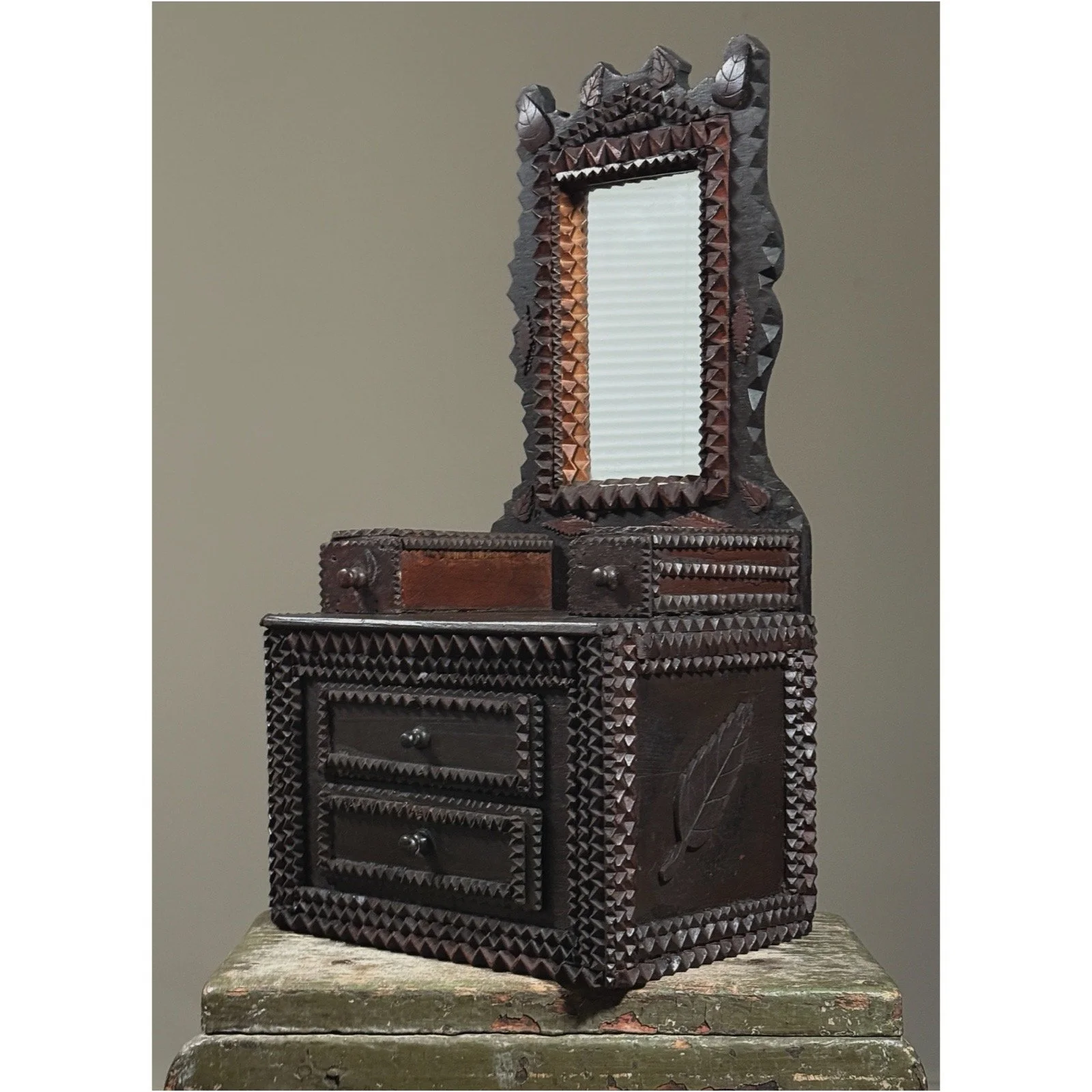 Image 3 of 14
Image 3 of 14

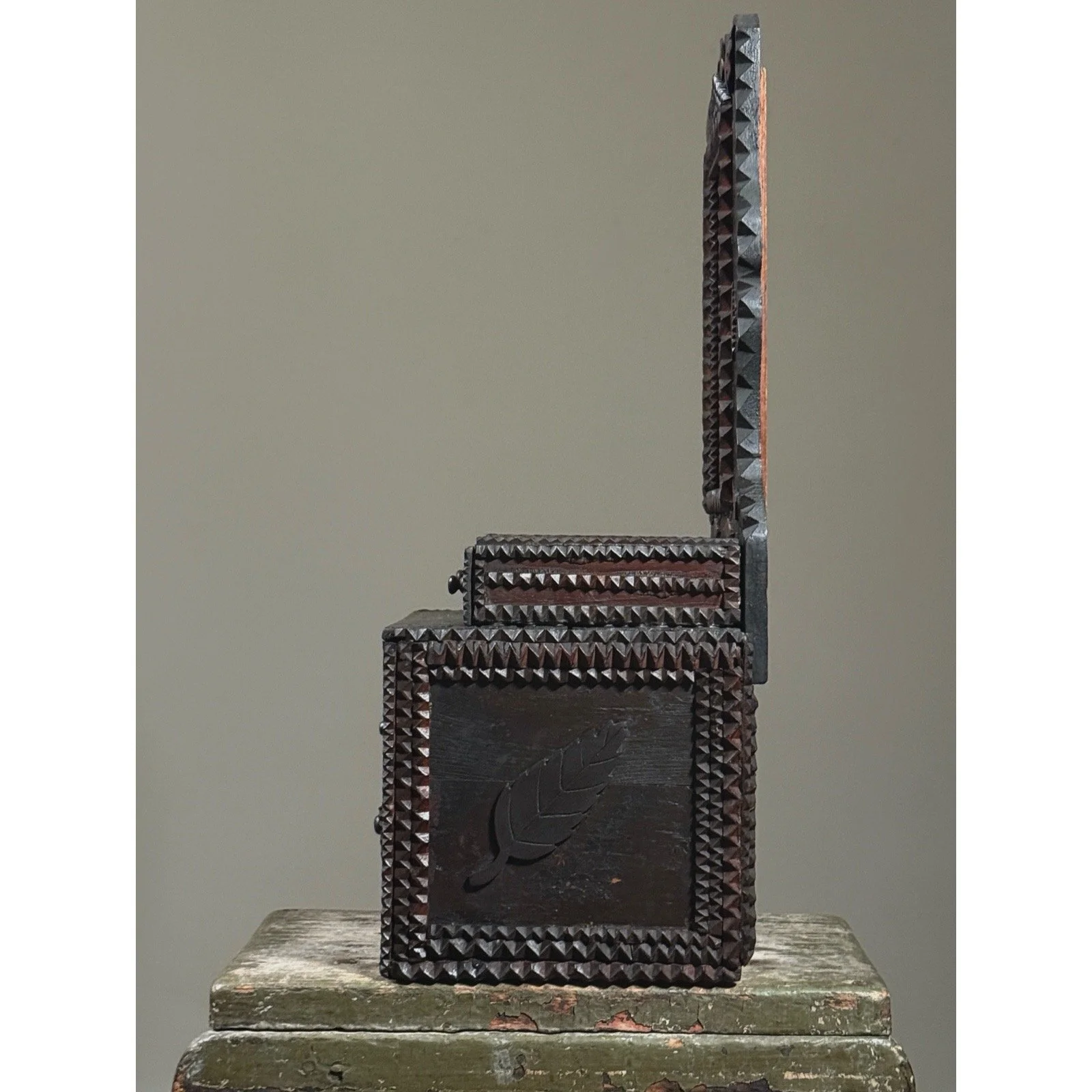 Image 4 of 14
Image 4 of 14

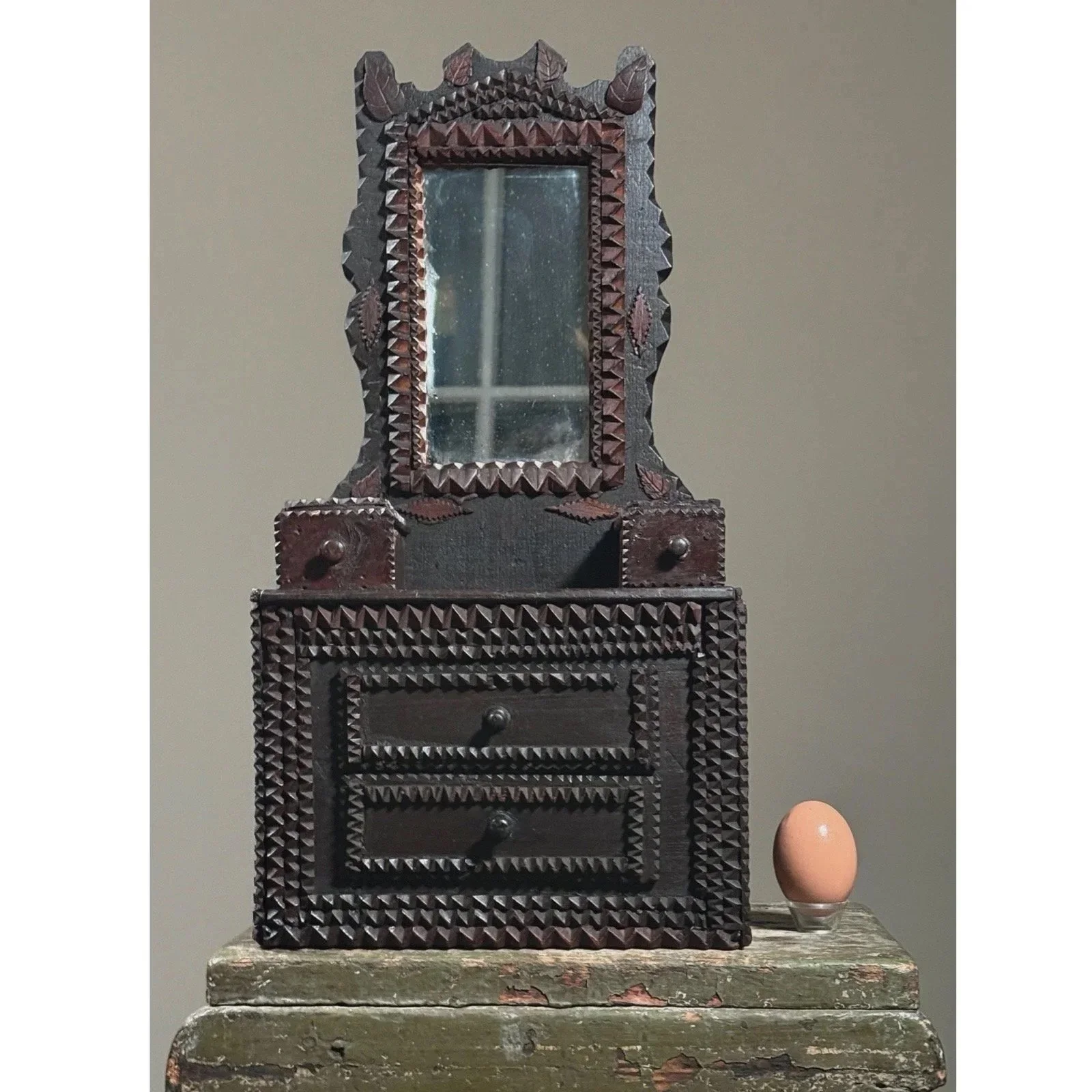 Image 5 of 14
Image 5 of 14

 Image 6 of 14
Image 6 of 14

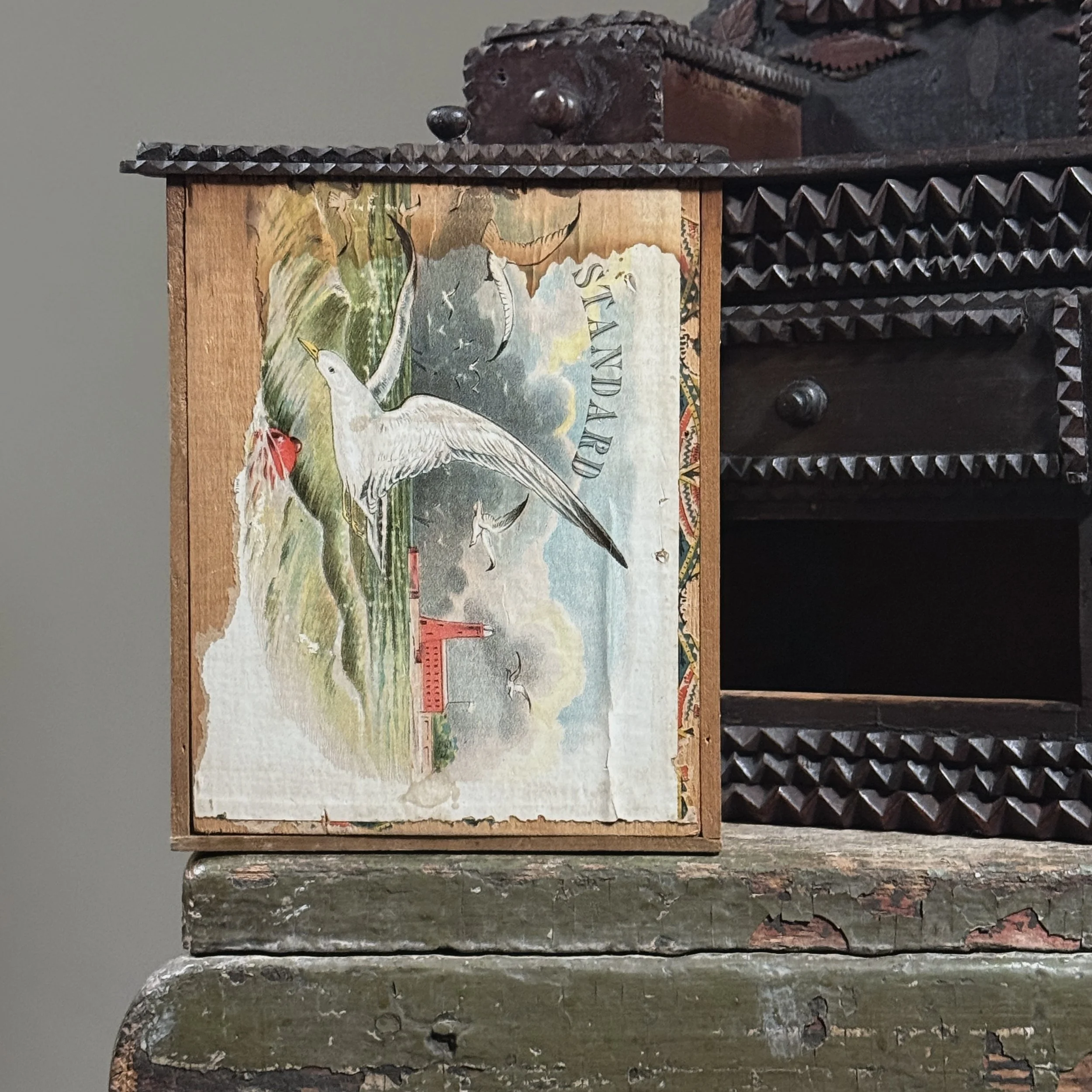 Image 7 of 14
Image 7 of 14

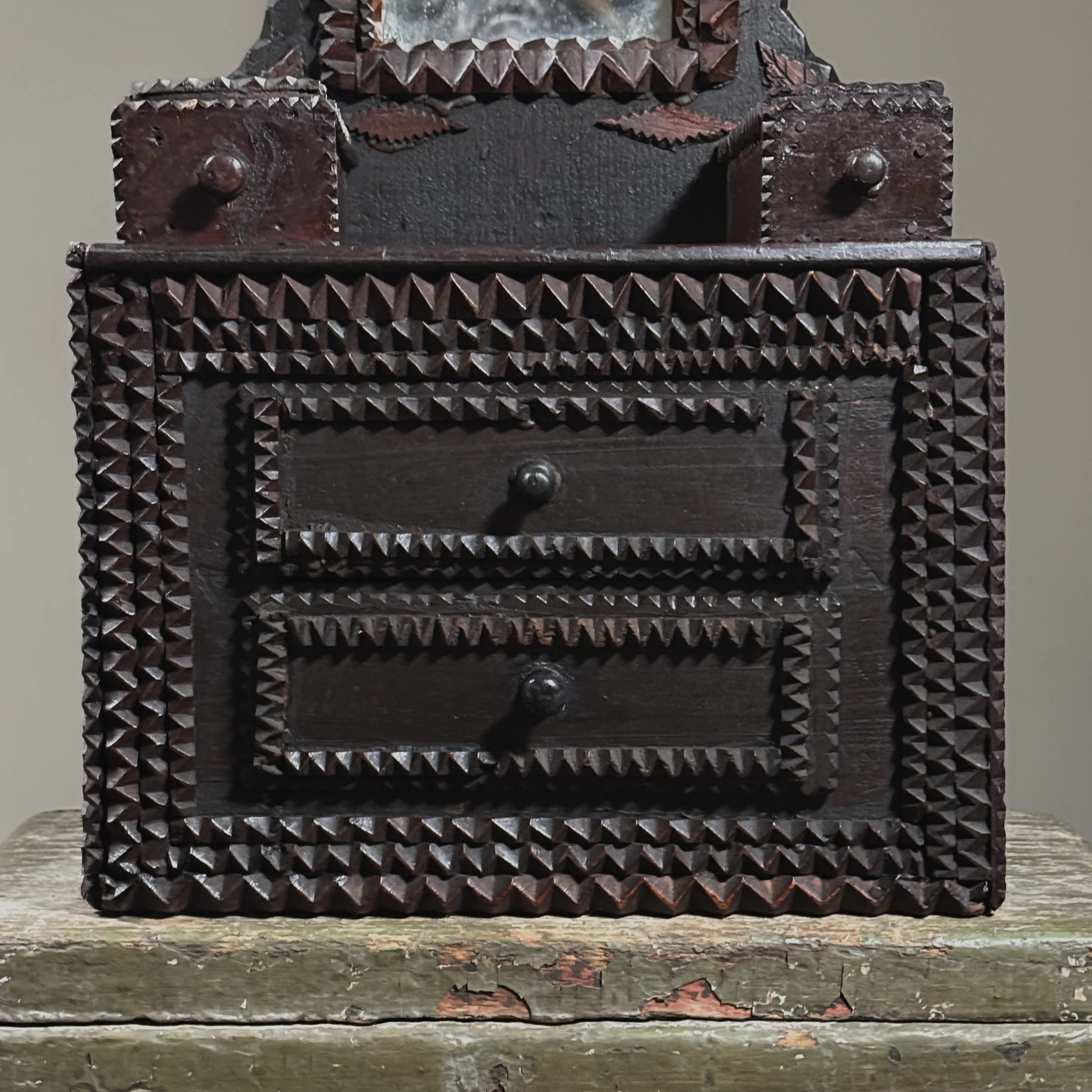 Image 8 of 14
Image 8 of 14

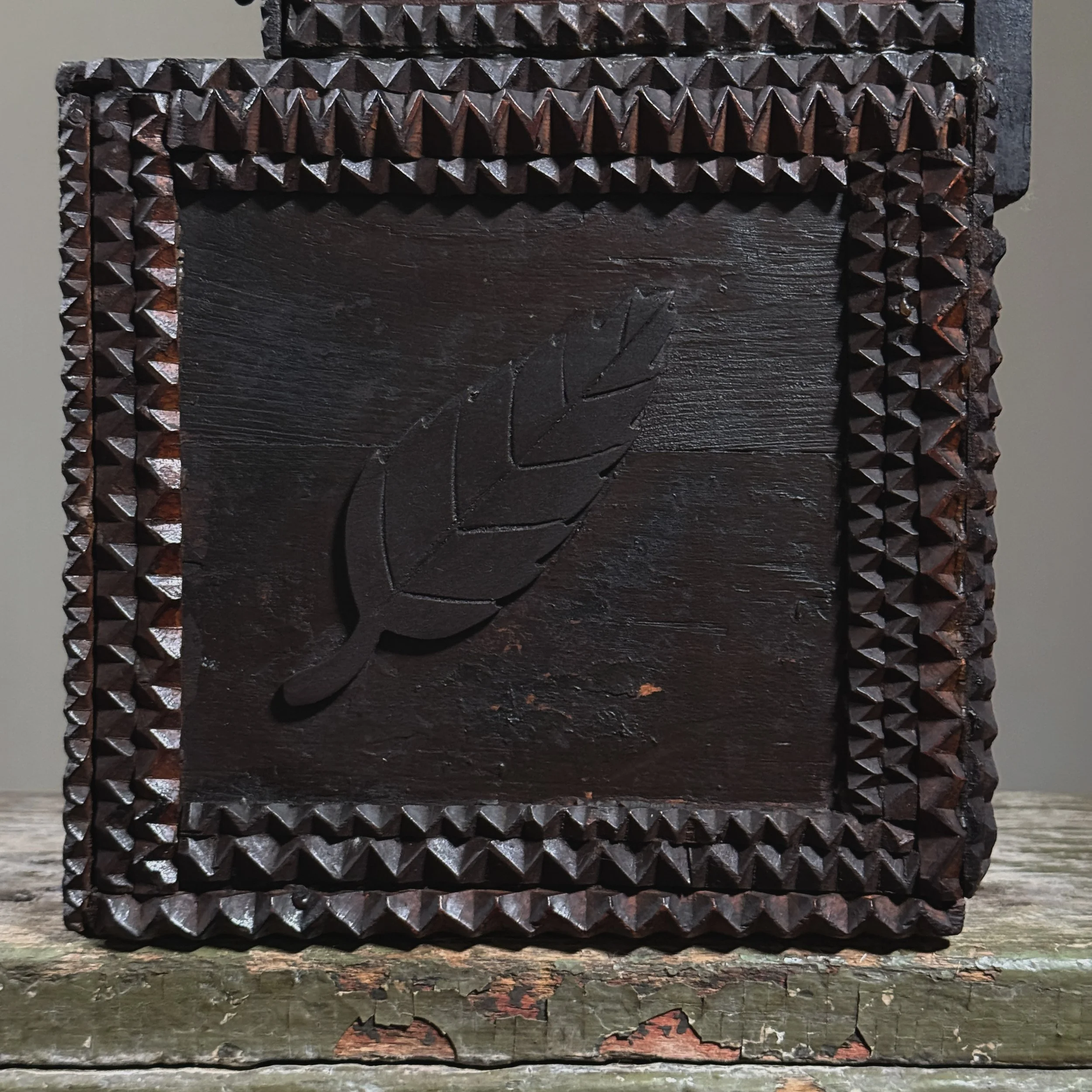 Image 9 of 14
Image 9 of 14

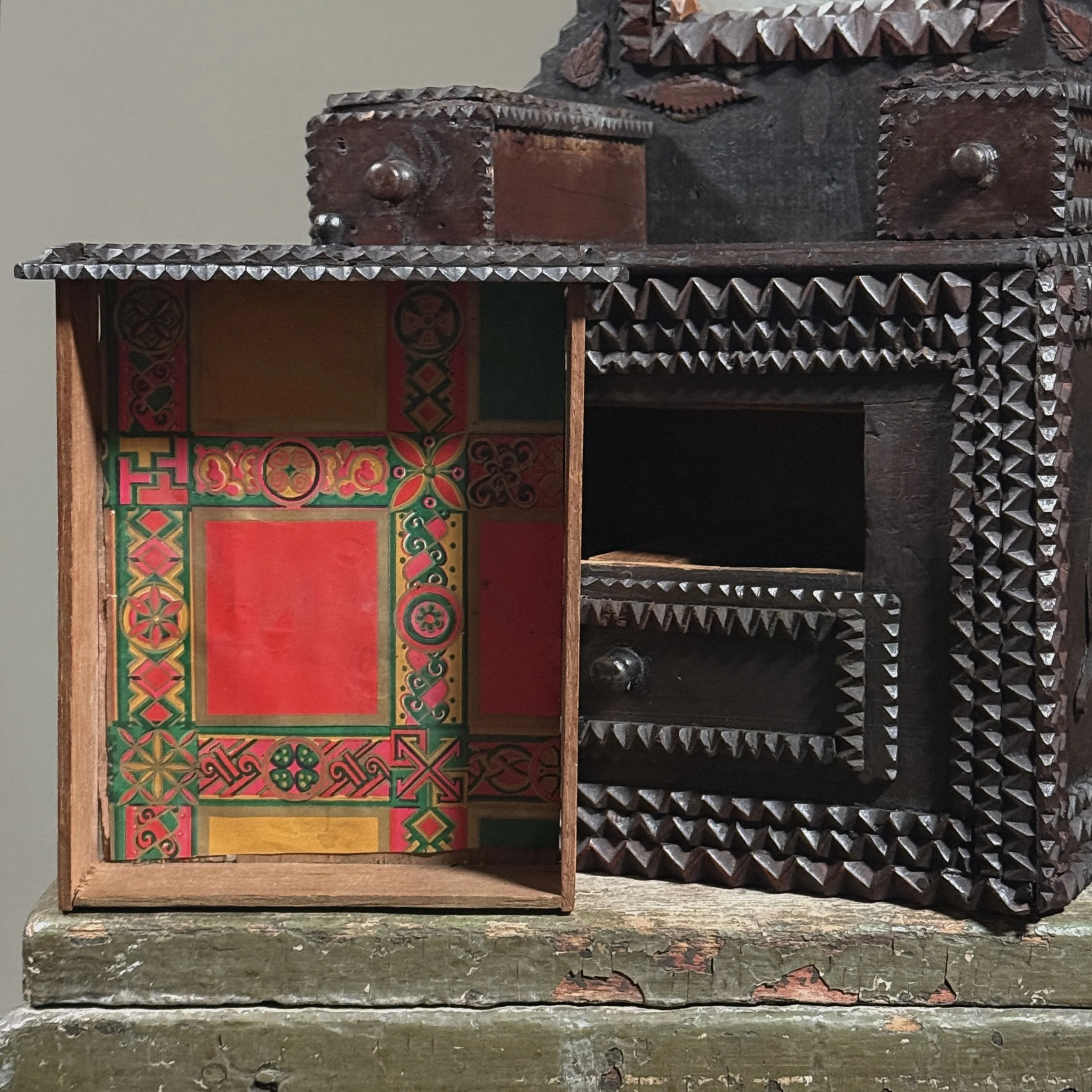 Image 10 of 14
Image 10 of 14

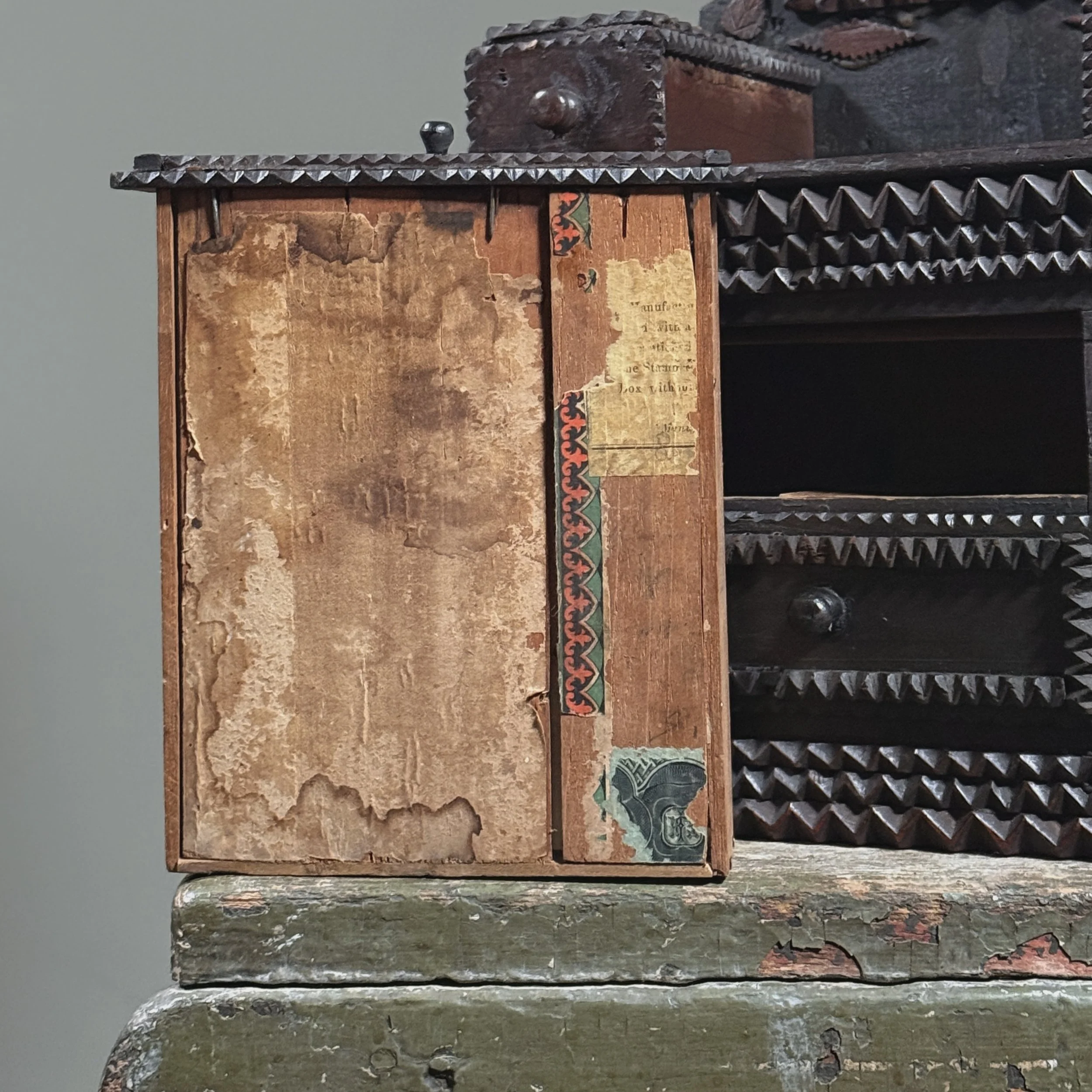 Image 11 of 14
Image 11 of 14

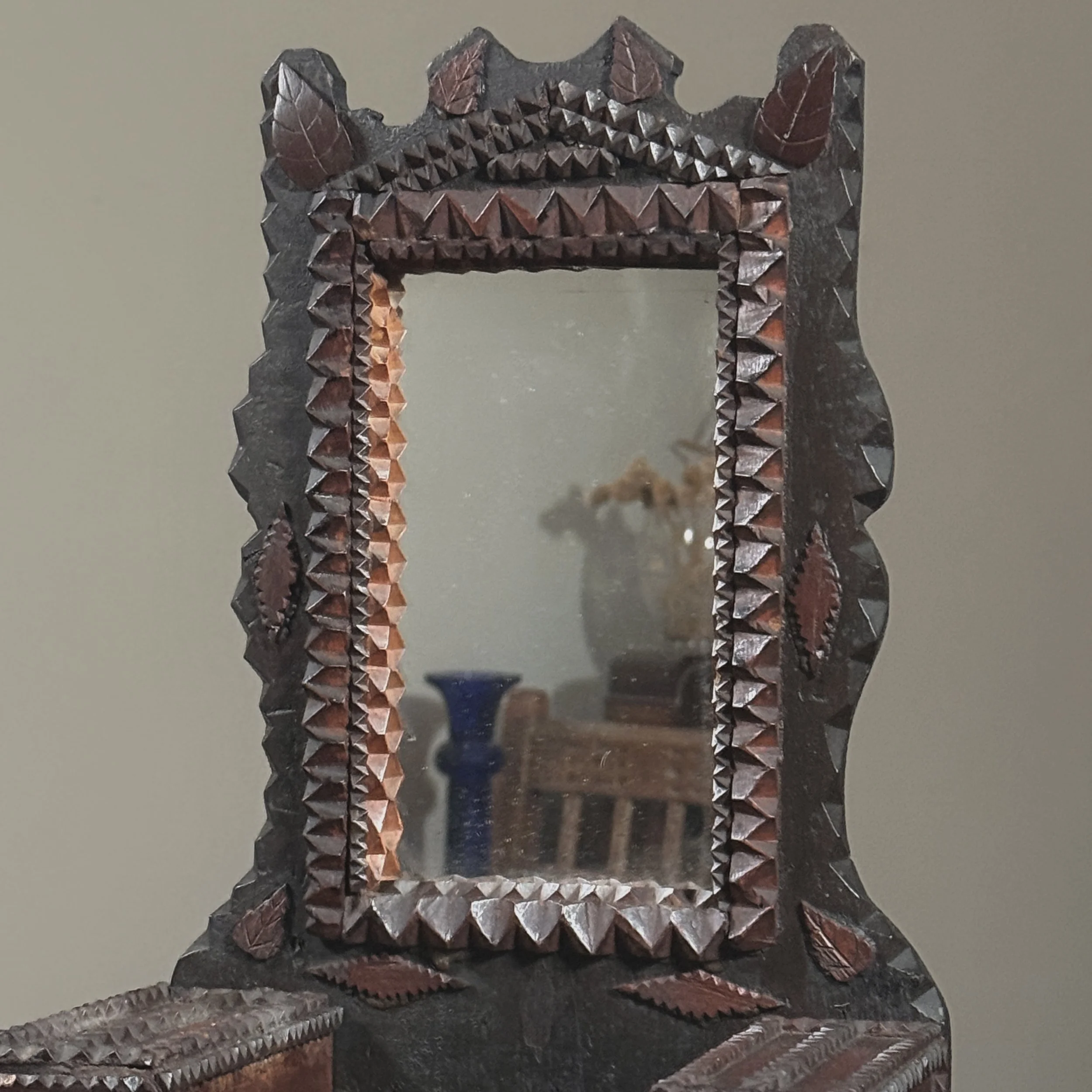 Image 12 of 14
Image 12 of 14

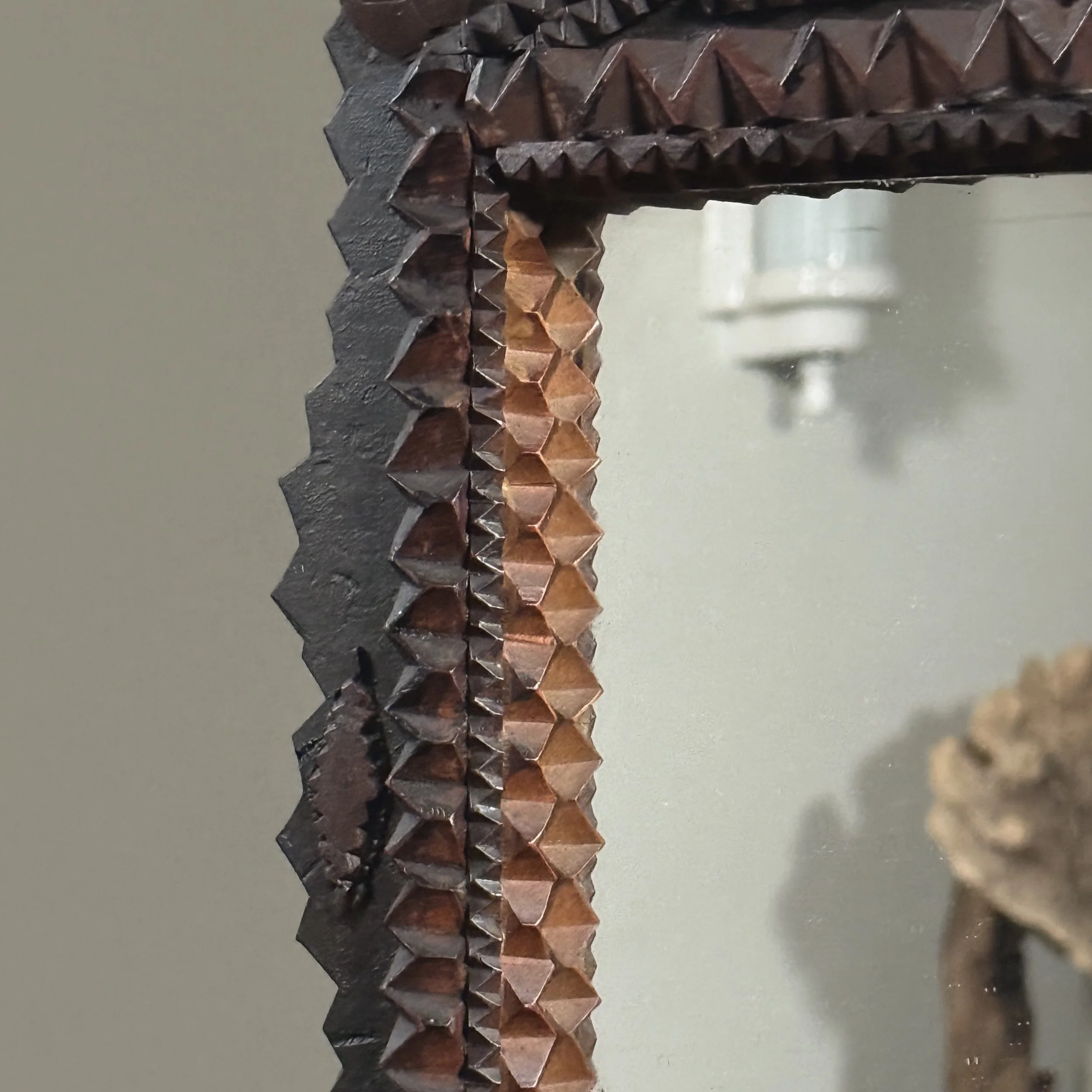 Image 13 of 14
Image 13 of 14

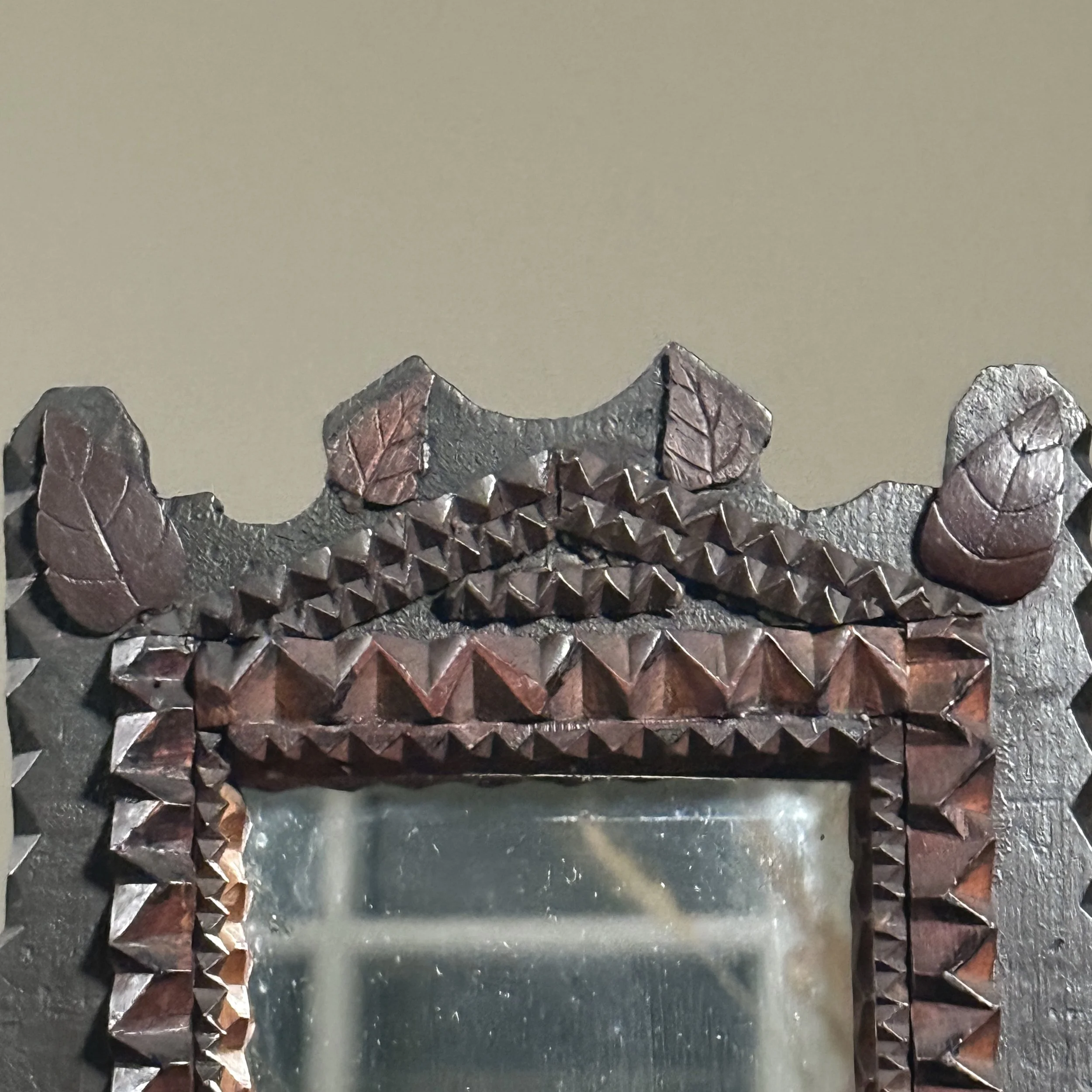 Image 14 of 14
Image 14 of 14















Antique Chip-Carved Tramp Art Dresser with Mirror
Antique Chip-Carved Tramp Art Dresser with Mirror
Size: 17.5”H x 10.38”W x 7.3”D
A compact, tabletop dresser in the Tramp Art style, dating from the late 19th to early 20th century. The piece is constructed using the characteristic chip-carving method, creating a layered, geometric surface.
The primary features include:
A central mirror with a heavily carved frame.
Two long, small drawers at the top.
Two larger, primary drawers below.
Chip-carved leaf motifs applied to both sides.
Notable historical details:
The original cigar box labels remain attached inside the larger drawers.
One drawer interior is lined with antique design paper.
The dresser has a dark, aged patina and is in good, stable condition. All wear is consistent with its age. A collectible example of American folk art.
Condition: Structurally sound. Surface shows expected scuffs, minor cracks, and wear. Mirror glass is original with minor imperfections. A small piece of the carved detail is missing on the top drawer. This could have also been how the artist created it.
Antique Chip-Carved Tramp Art Dresser with Mirror
Size: 17.5”H x 10.38”W x 7.3”D
A compact, tabletop dresser in the Tramp Art style, dating from the late 19th to early 20th century. The piece is constructed using the characteristic chip-carving method, creating a layered, geometric surface.
The primary features include:
A central mirror with a heavily carved frame.
Two long, small drawers at the top.
Two larger, primary drawers below.
Chip-carved leaf motifs applied to both sides.
Notable historical details:
The original cigar box labels remain attached inside the larger drawers.
One drawer interior is lined with antique design paper.
The dresser has a dark, aged patina and is in good, stable condition. All wear is consistent with its age. A collectible example of American folk art.
Condition: Structurally sound. Surface shows expected scuffs, minor cracks, and wear. Mirror glass is original with minor imperfections. A small piece of the carved detail is missing on the top drawer. This could have also been how the artist created it.


